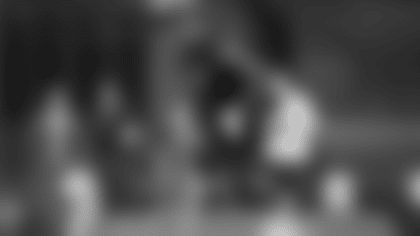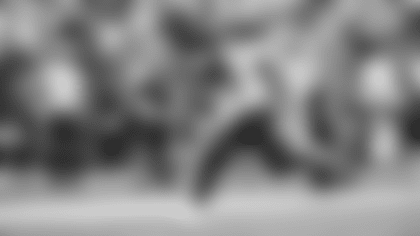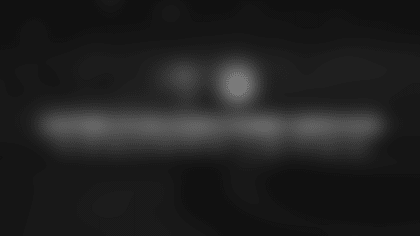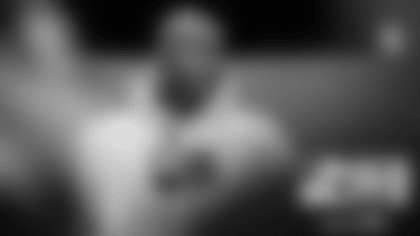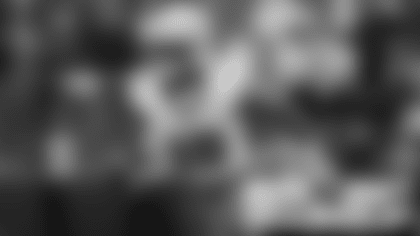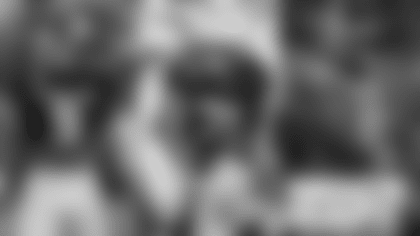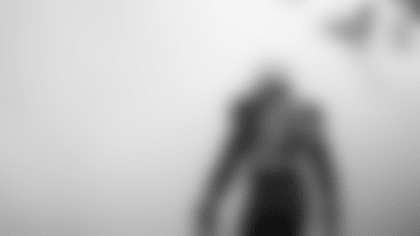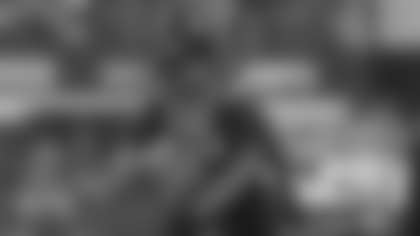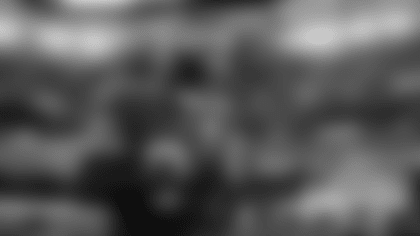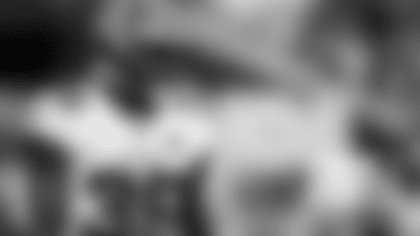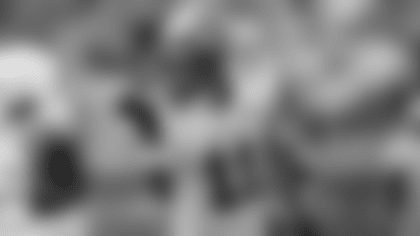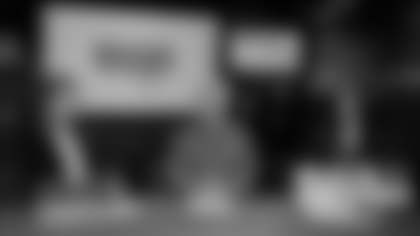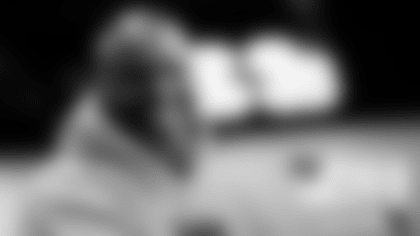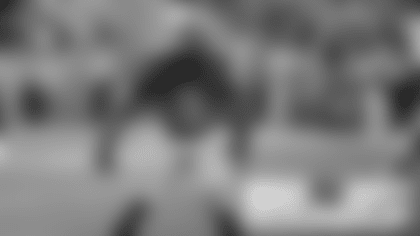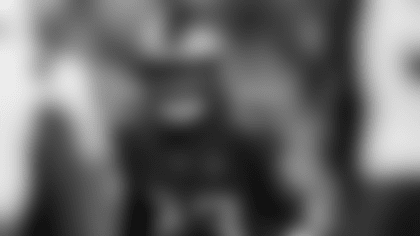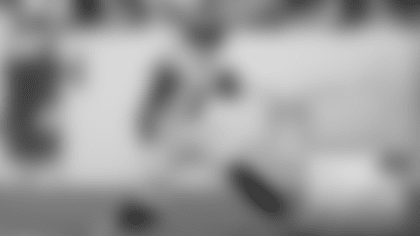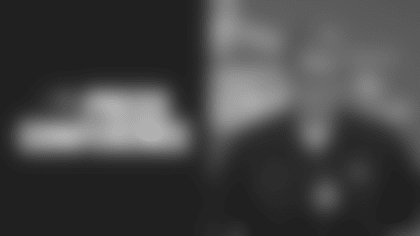A look at the Buccaneers' Week 2 opponent.
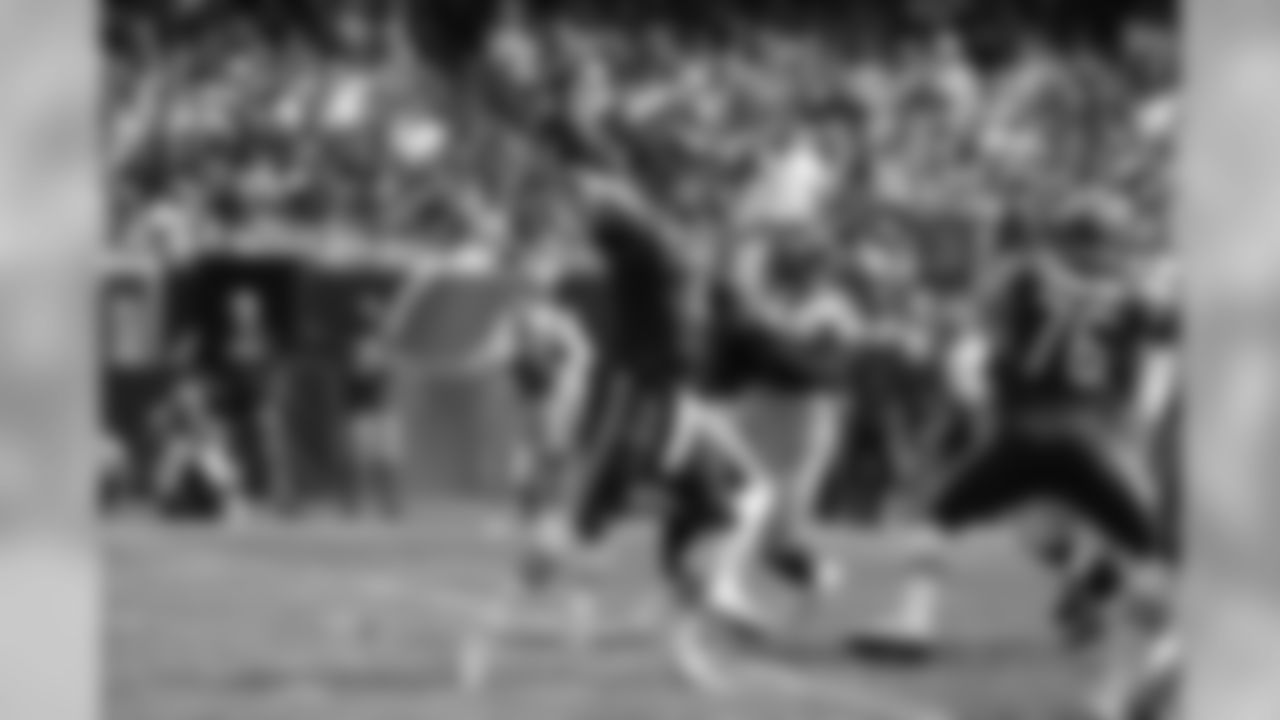
QB Mike Glennon
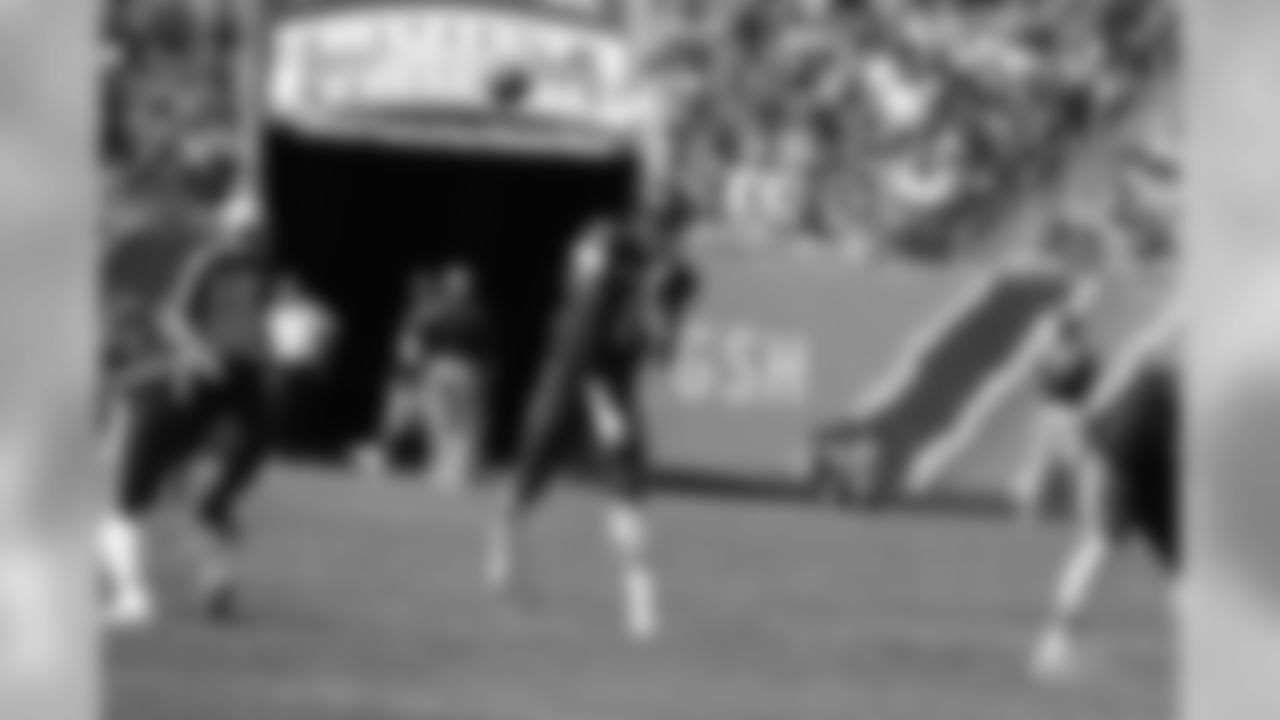
QB Mike Glennon
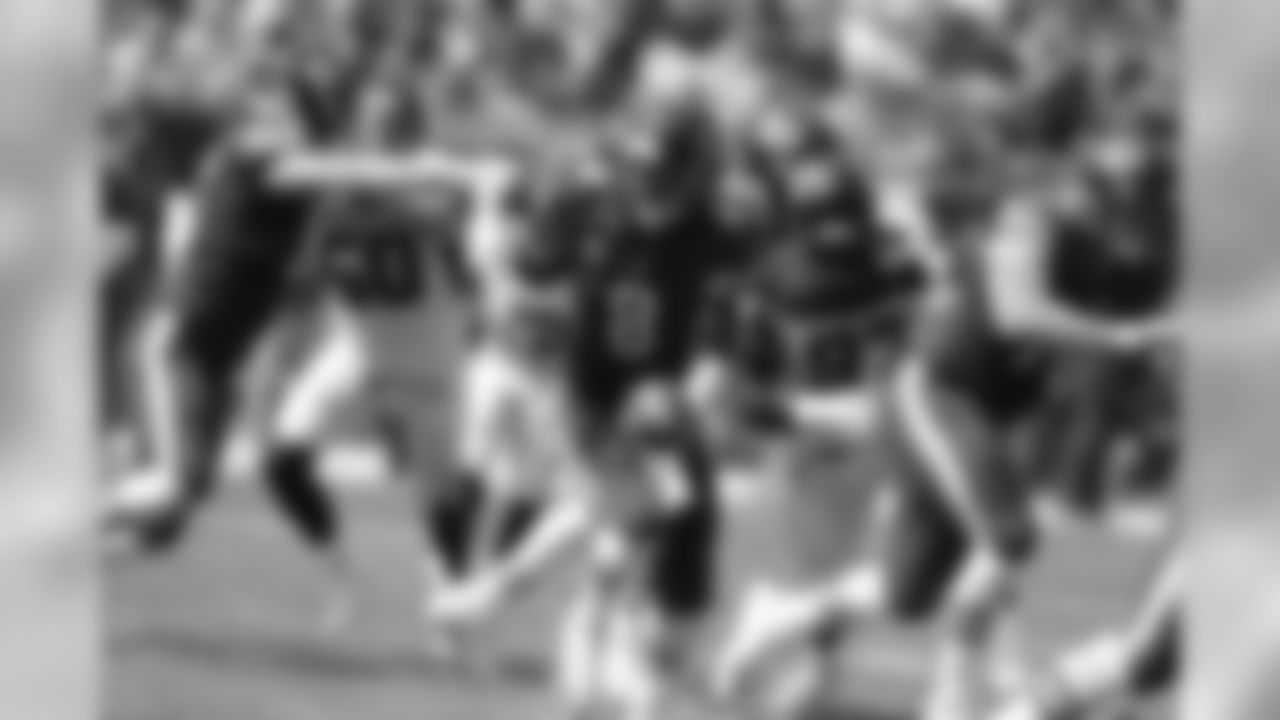
QB Mike Glennon
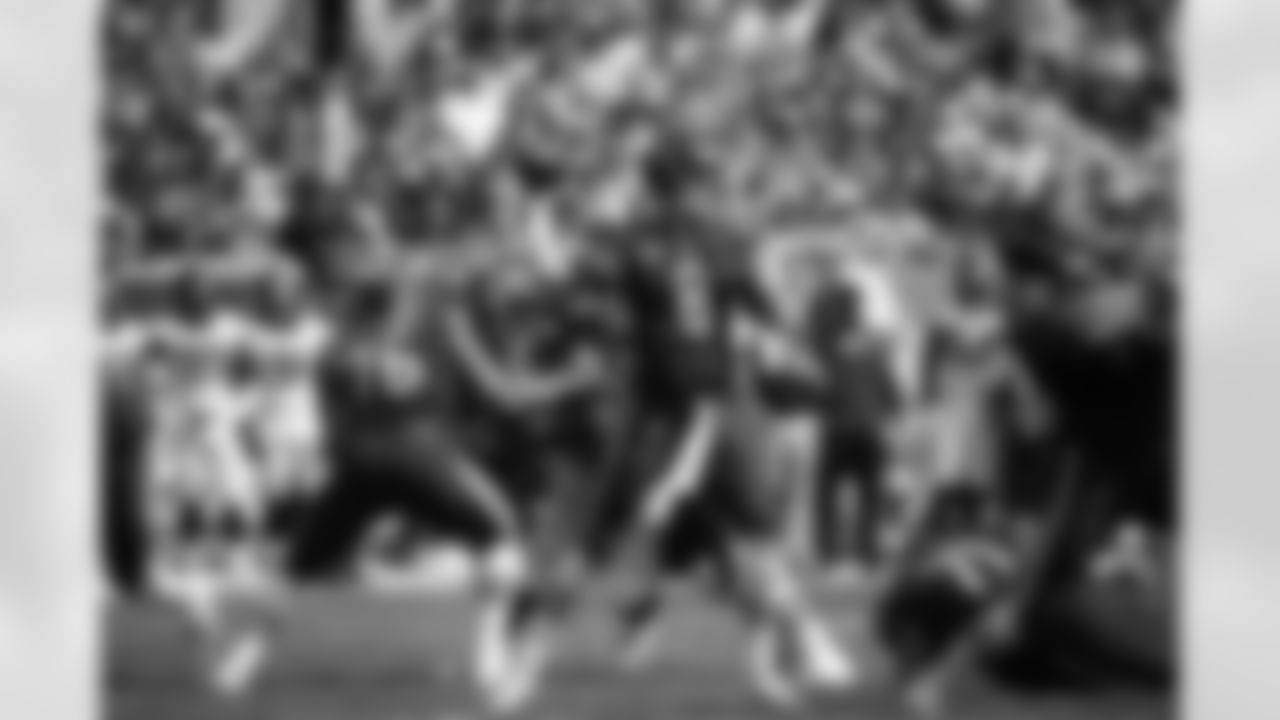
QB Mike Glennon
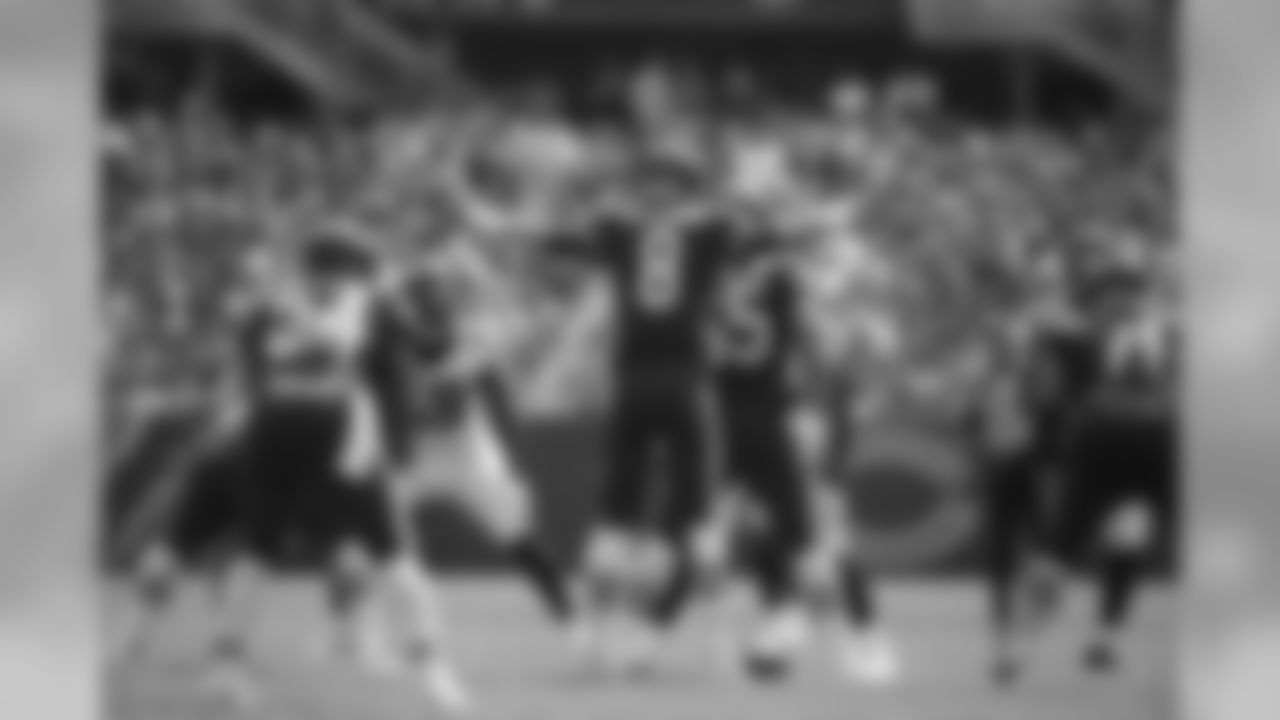
QB Mike Glennon
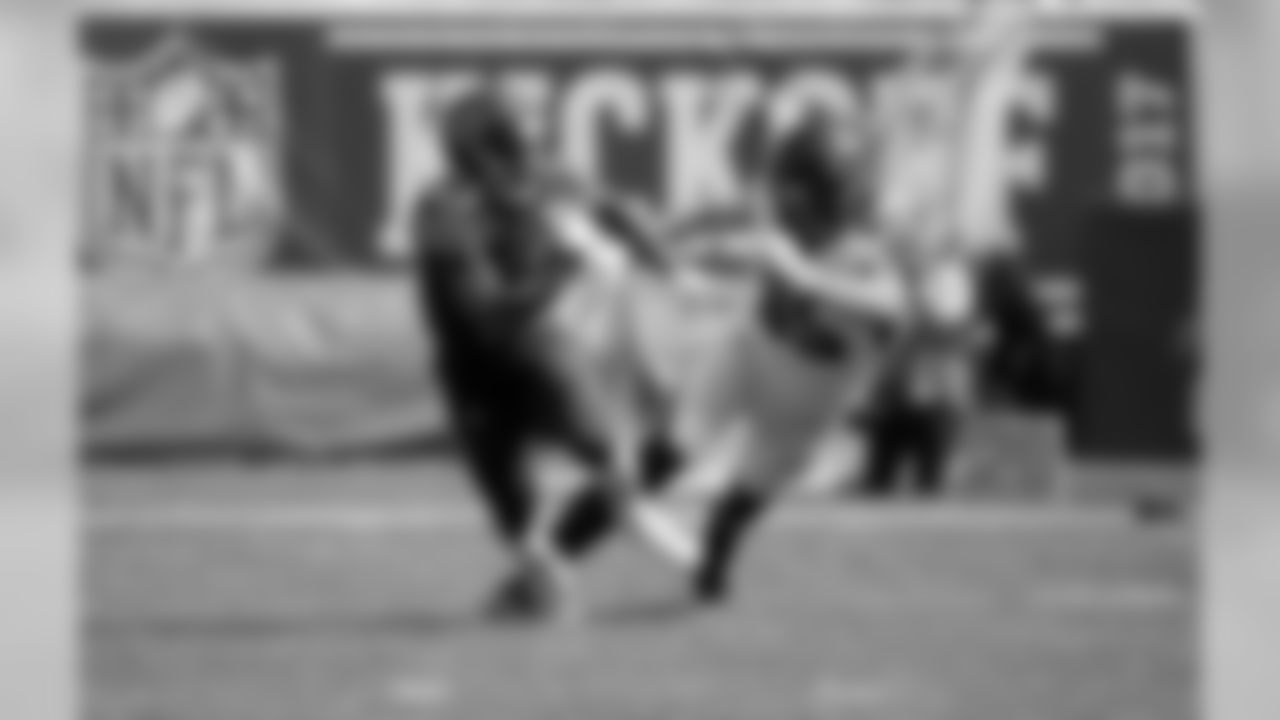
RB Tarik Cohen
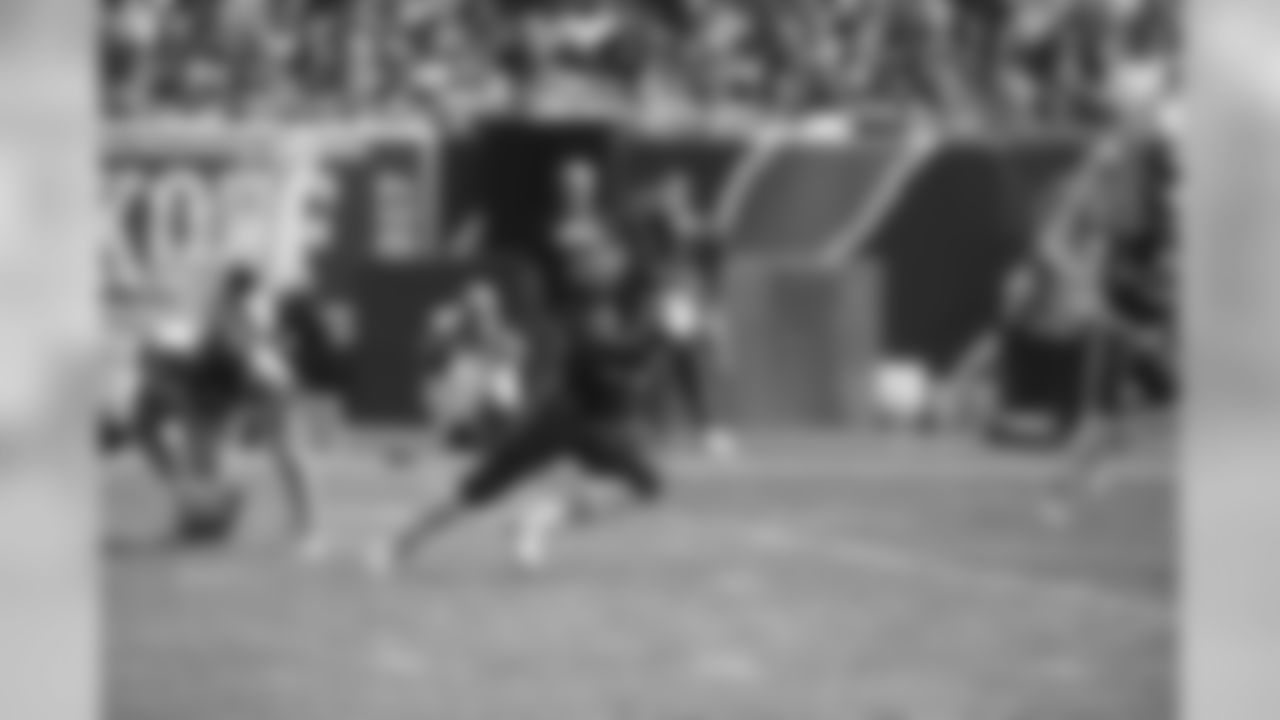
RB Tarik Cohen
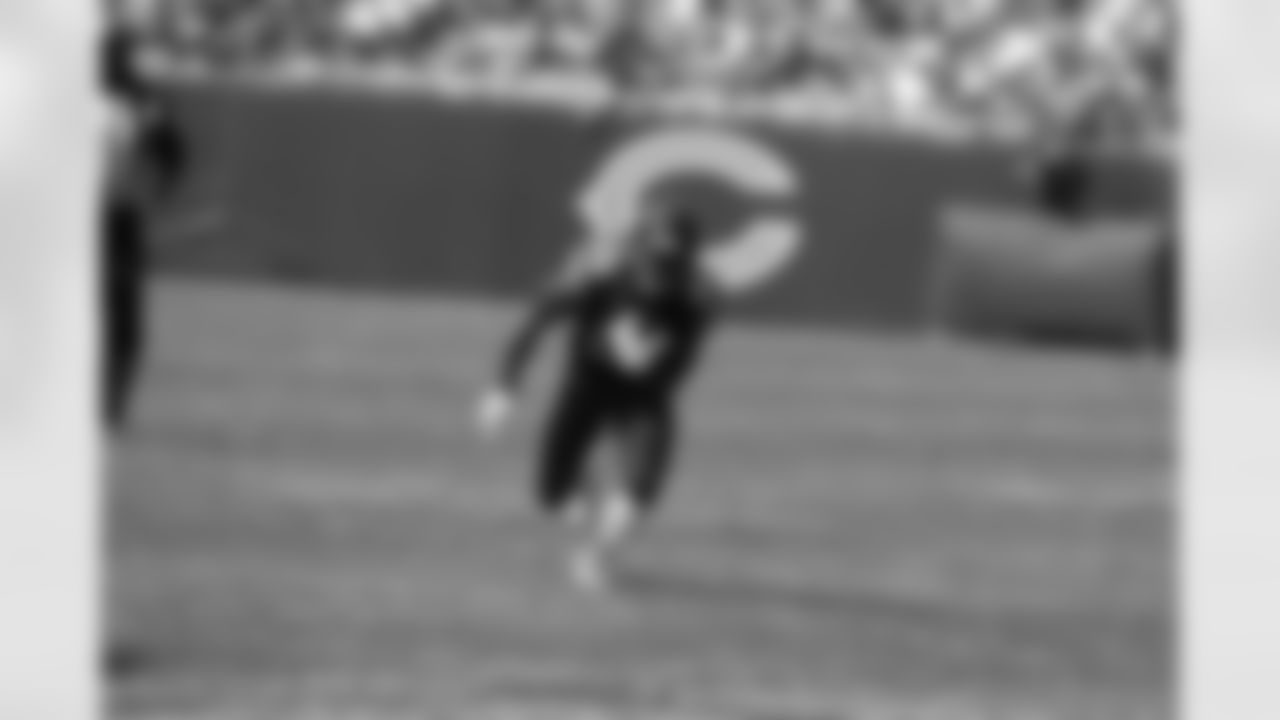
RB Tarik Cohen
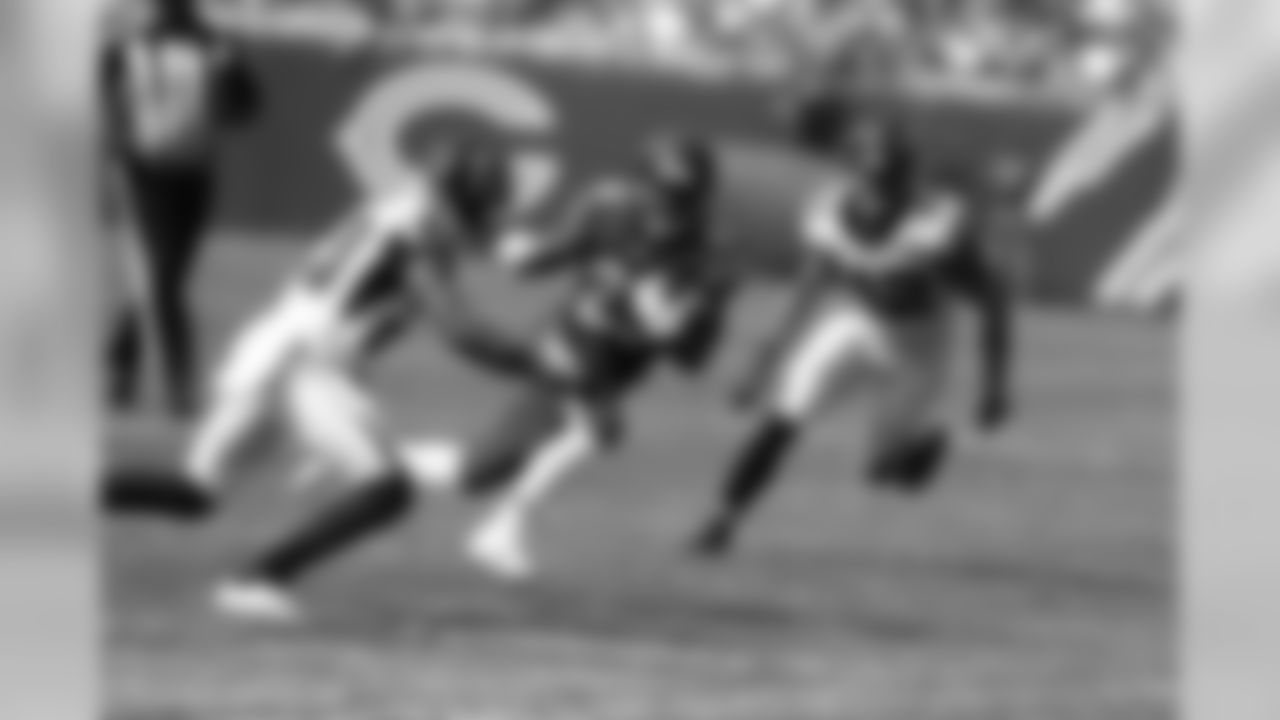
RB Tarik Cohen
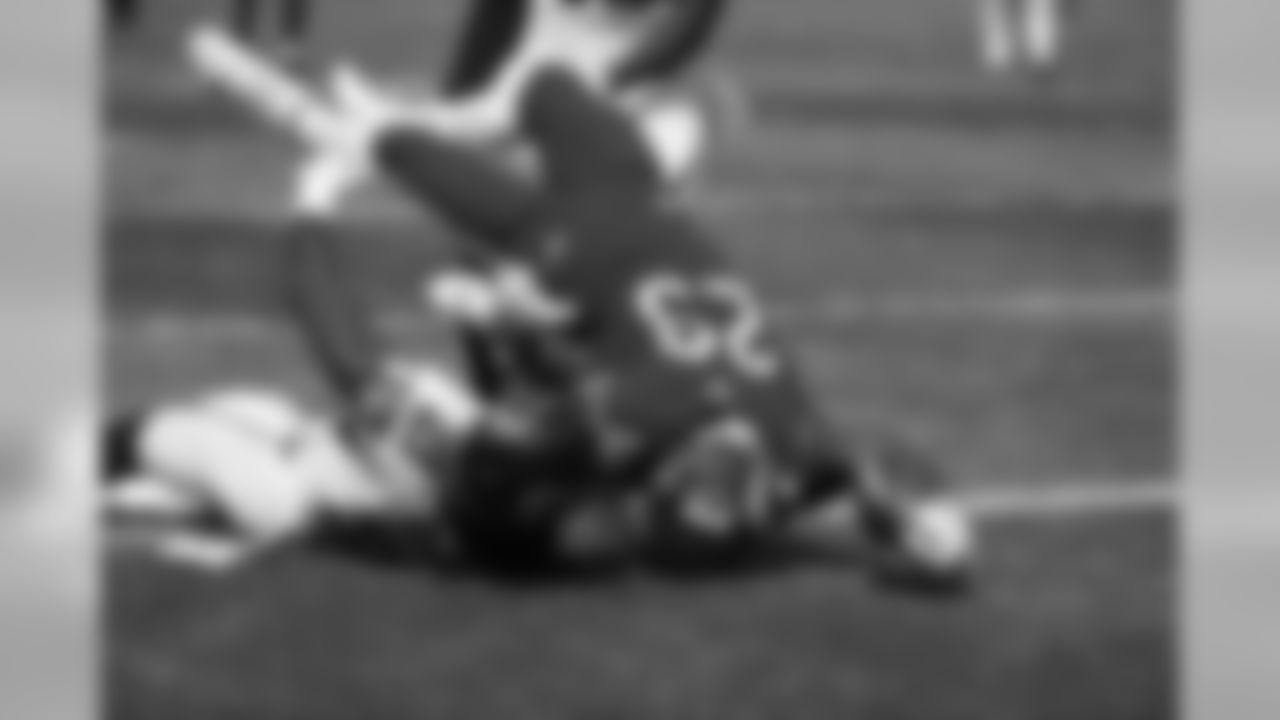
RB Tarik Cohen
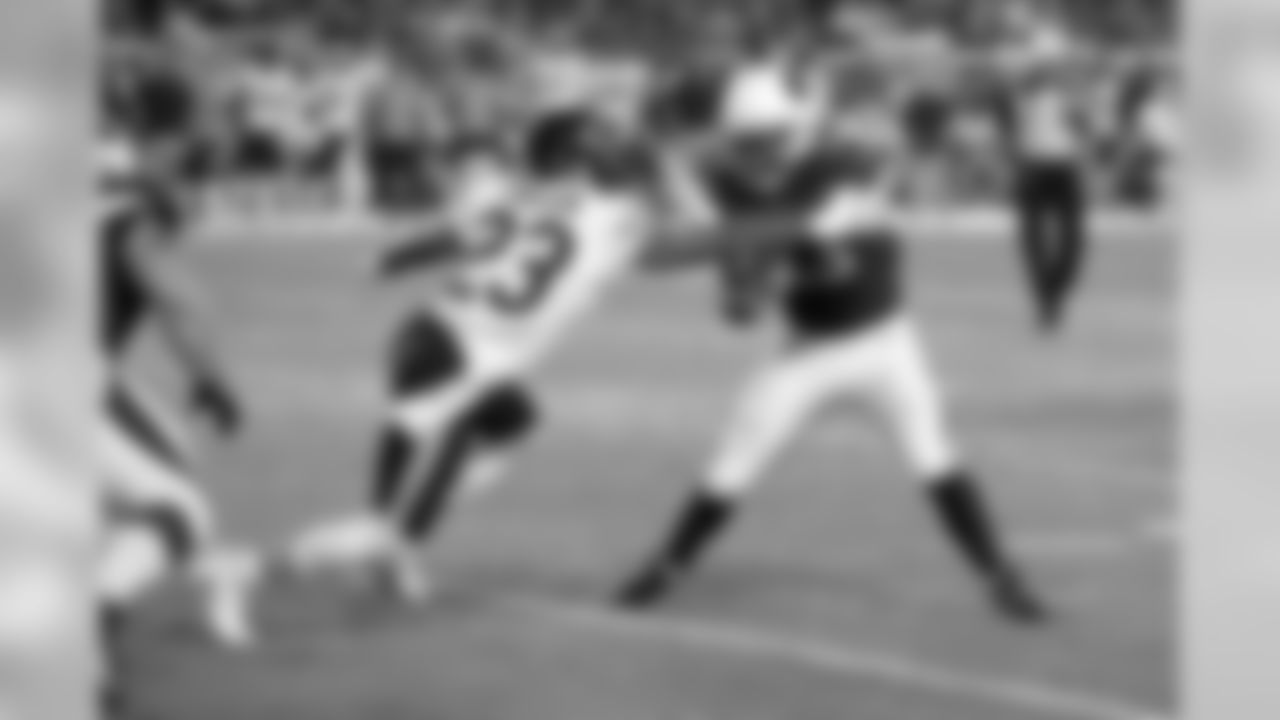
CB Kyle Fuller
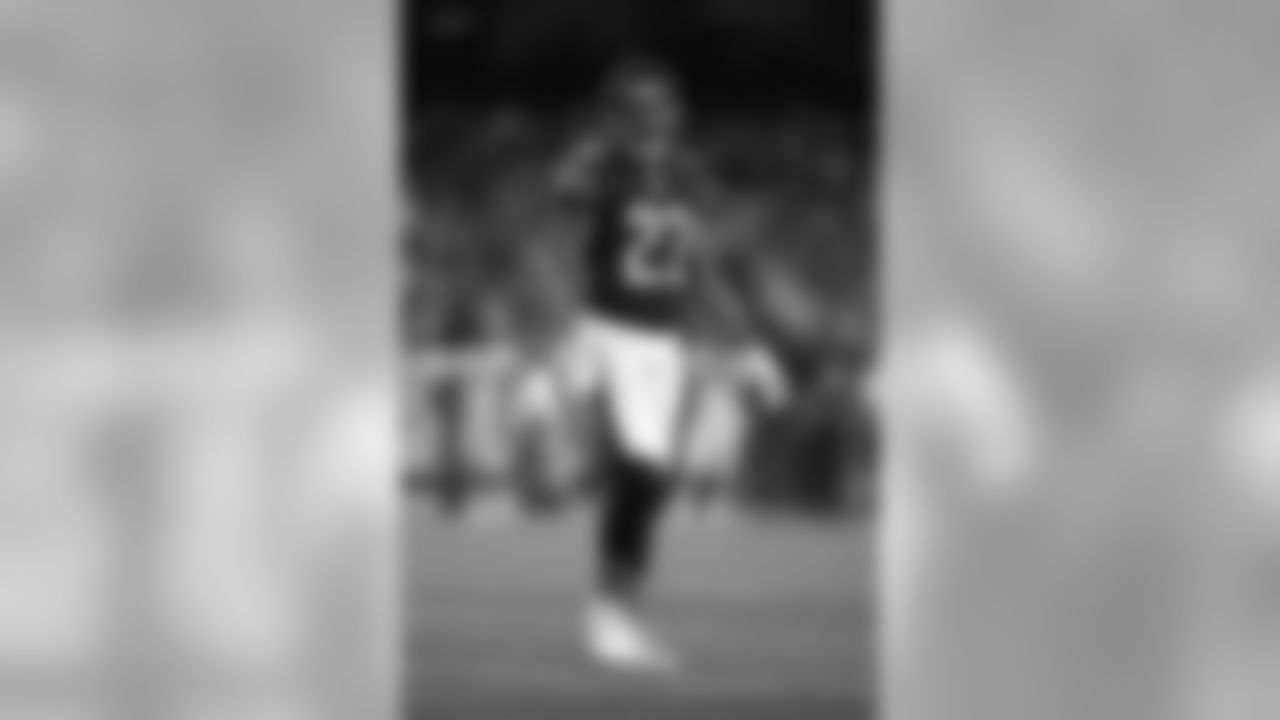
CB Kyle Fuller

CB Kyle Fuller
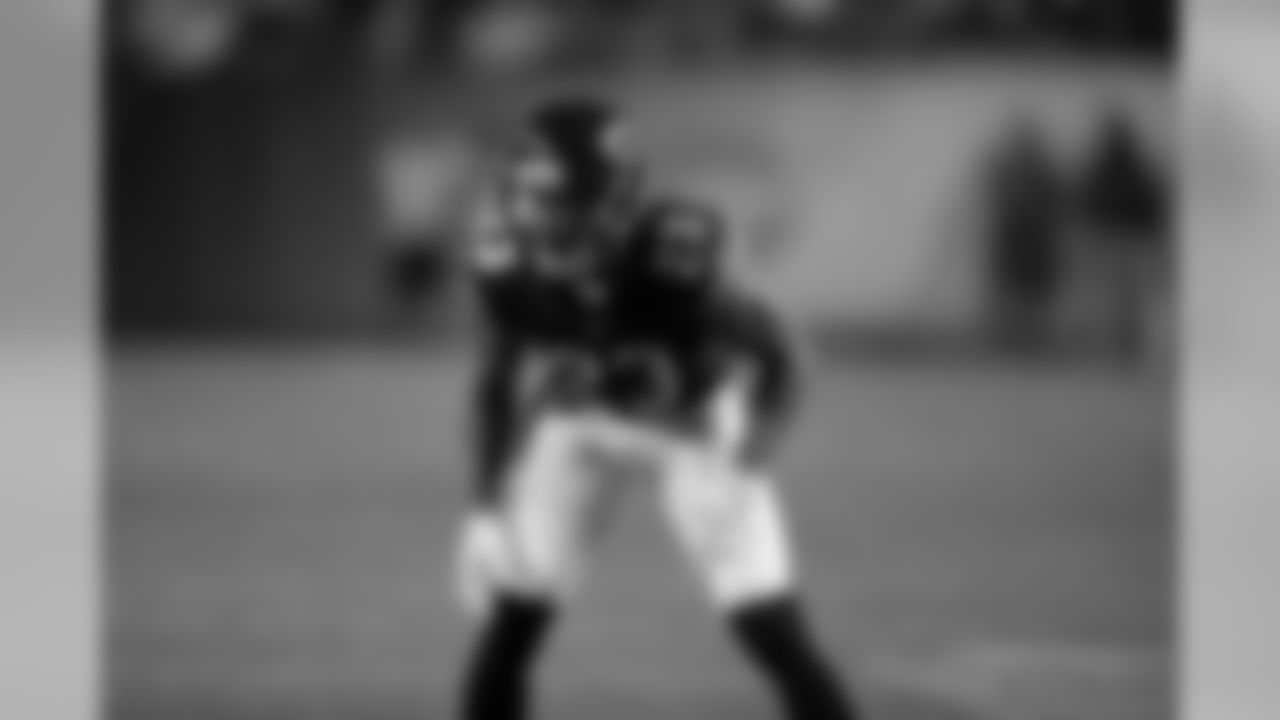
CB Kyle Fuller
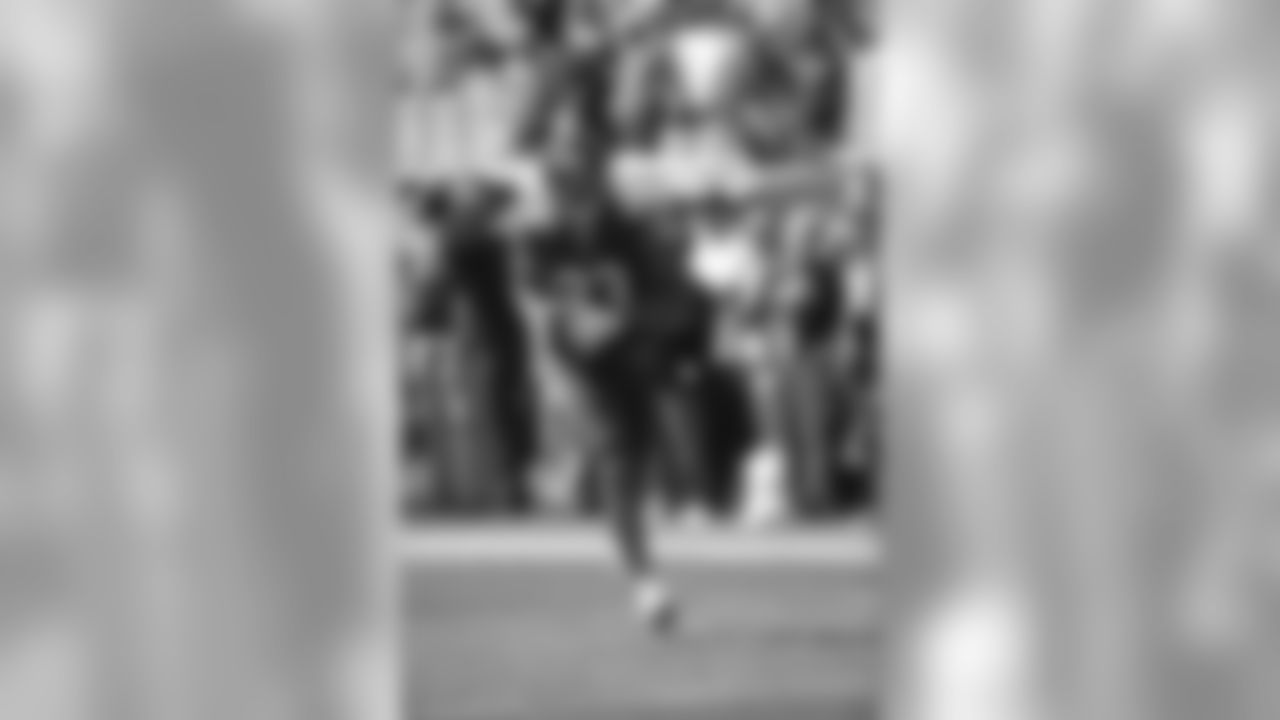
CB Kyle Fuller
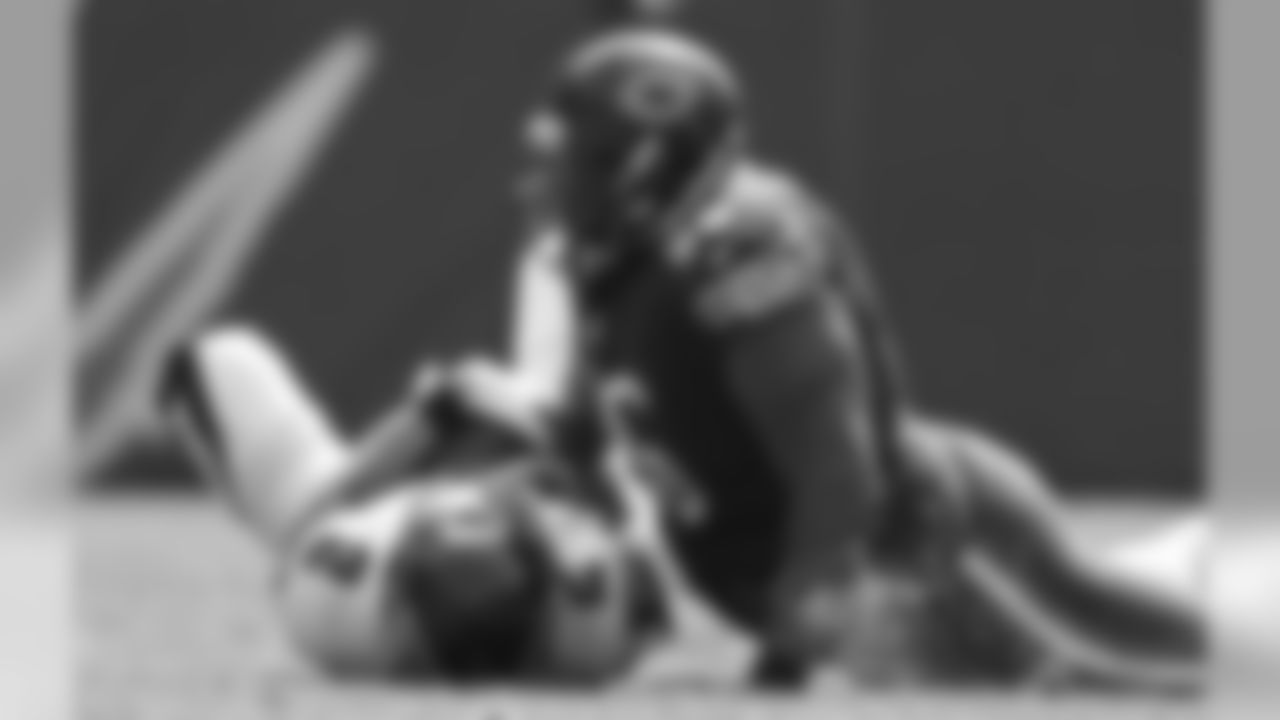
DE Akiem Hicks

DE Akiem Hicks
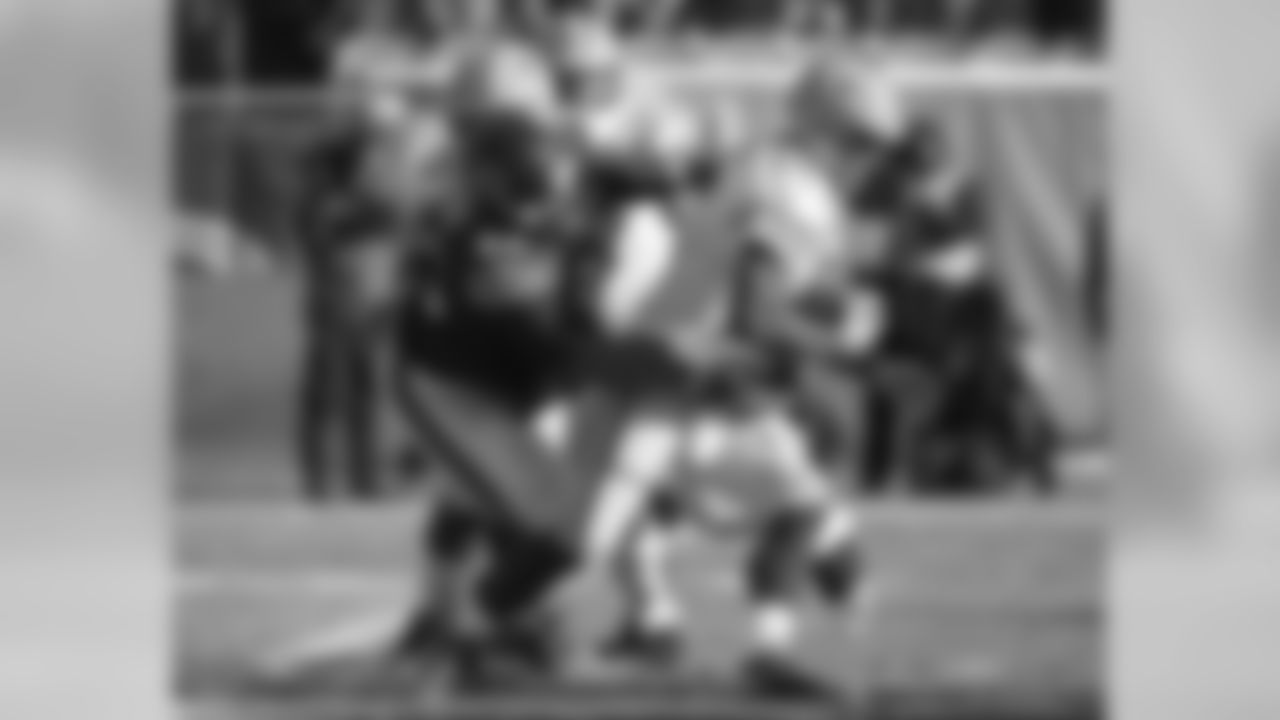
DE Akiem Hicks
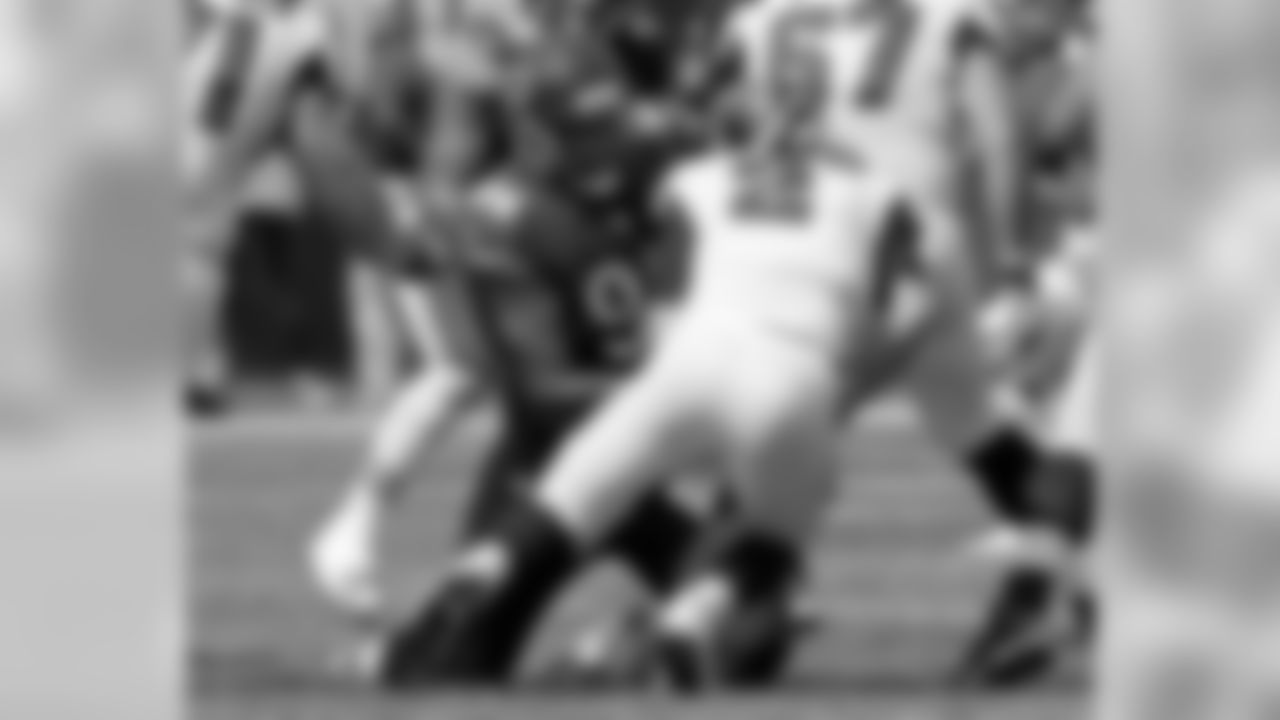
DE Akiem Hicks
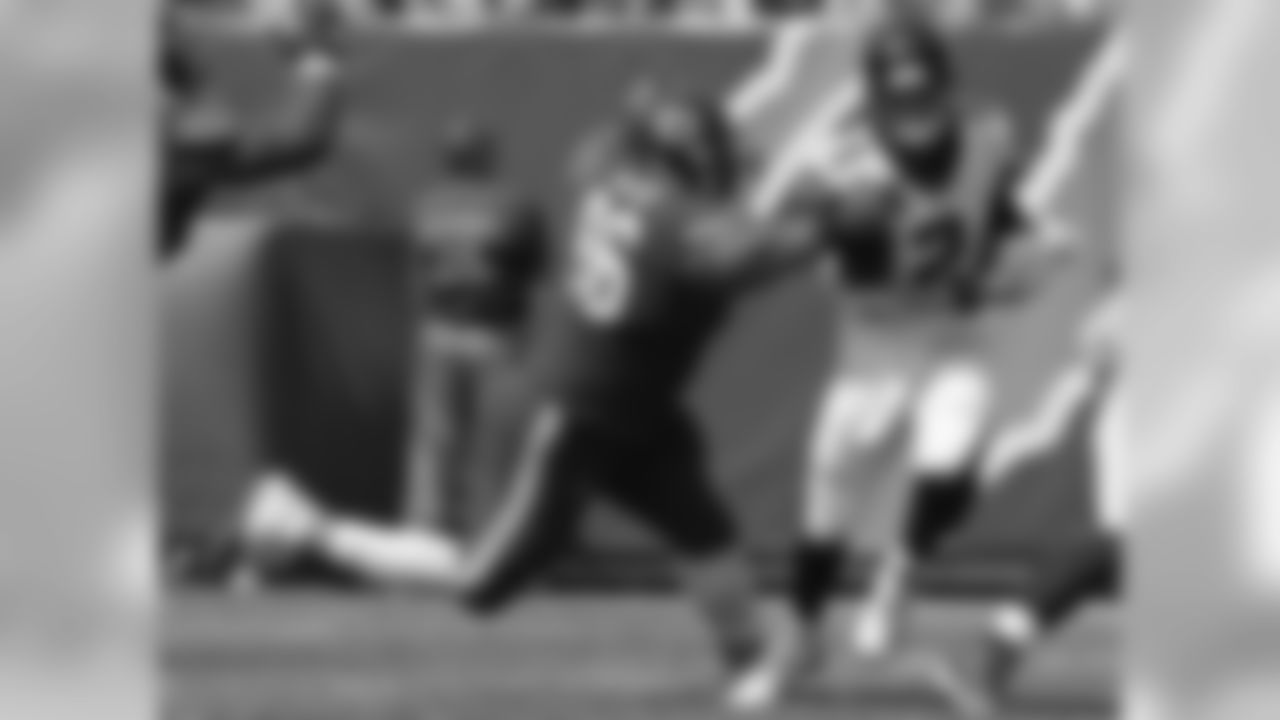
DE Akiem Hicks
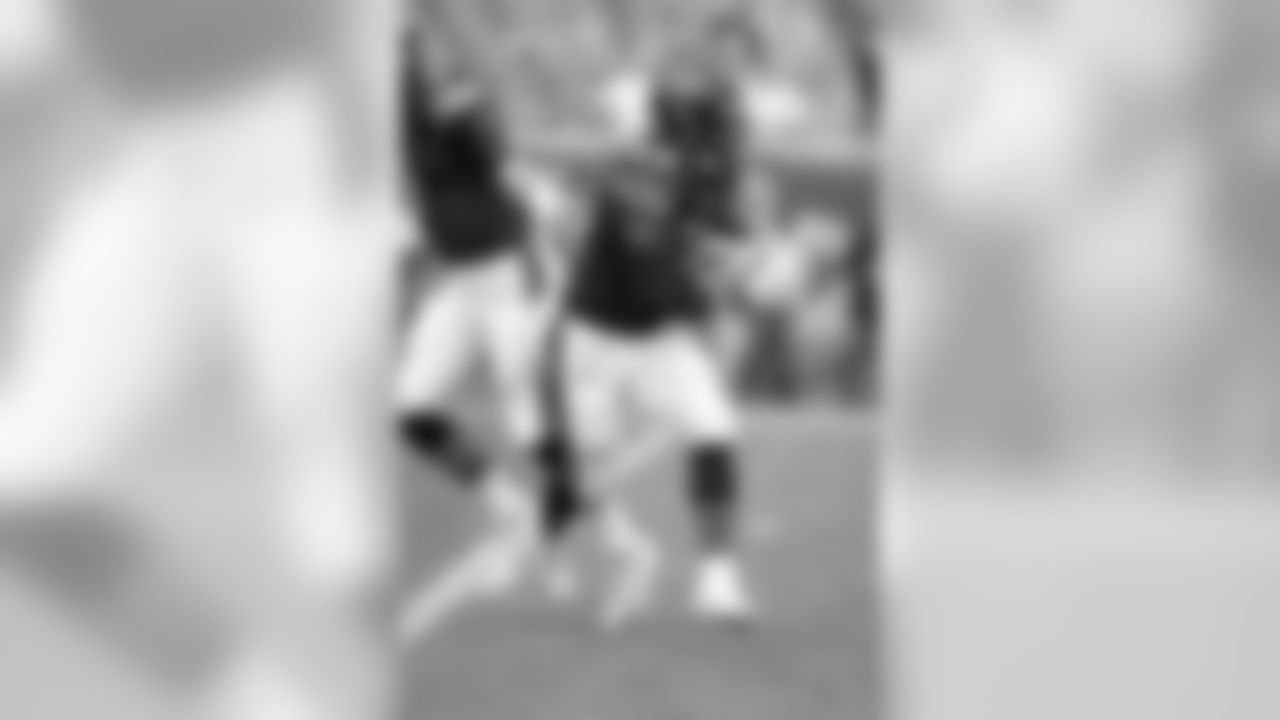
RB Jordan Howard
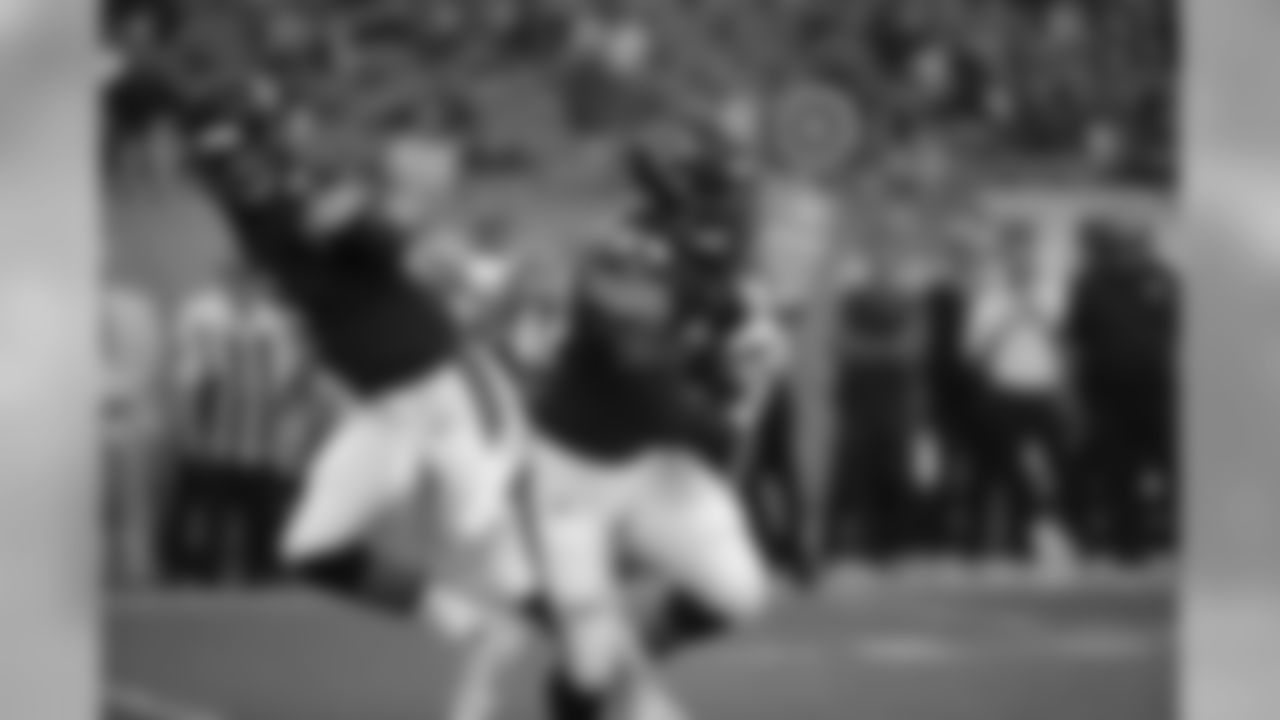
RB Jordan Howard

RB Jordan Howard
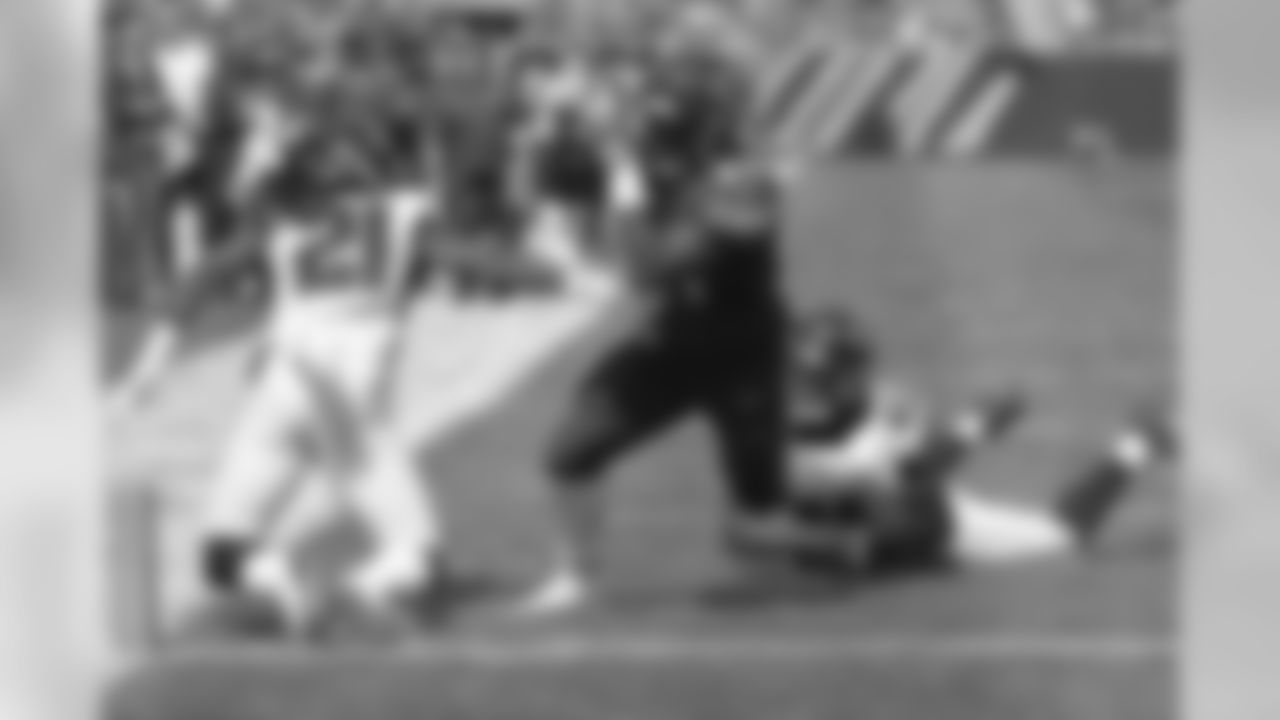
RB Jordan Howard
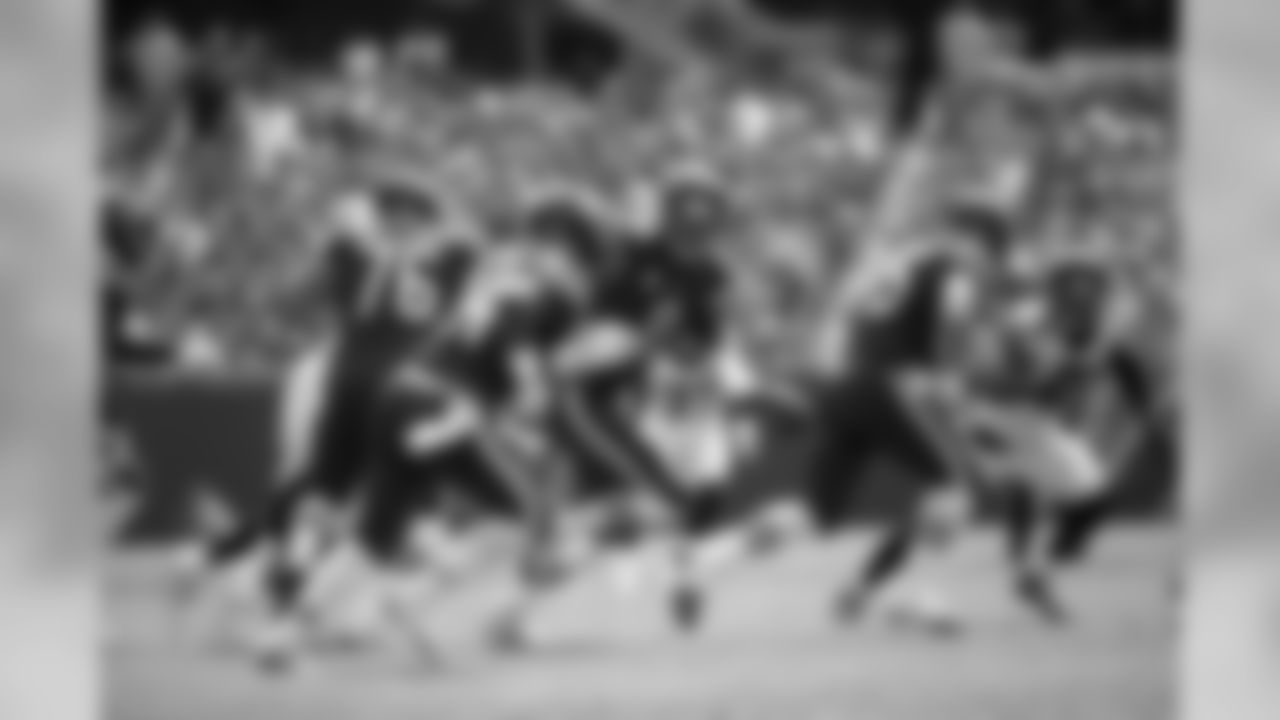
RB Jordan Howard
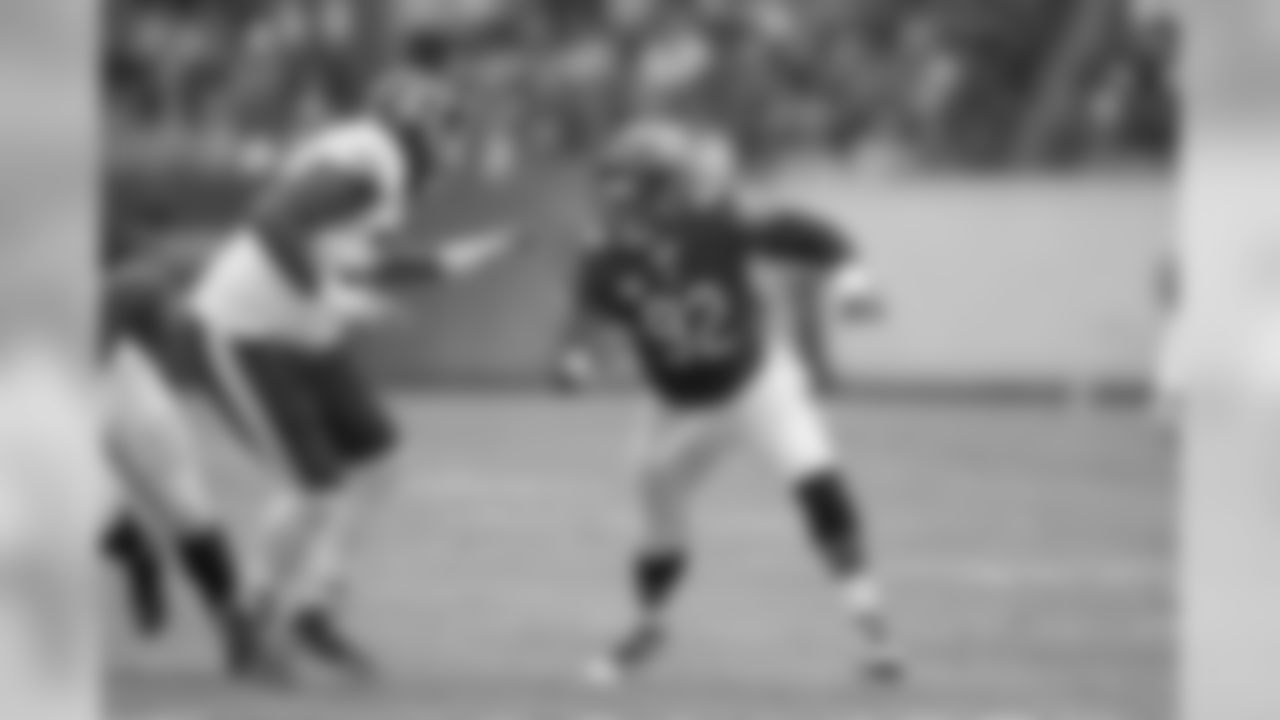
LB Pernell McPhee
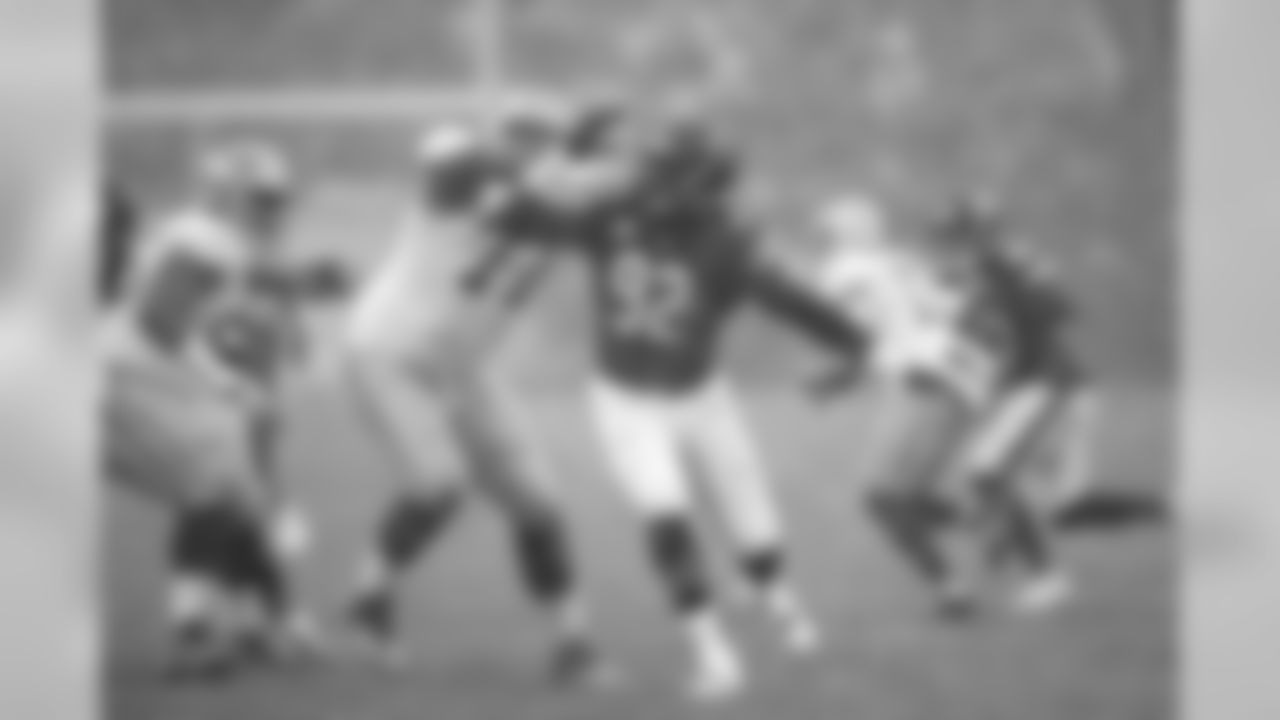
LB Pernell McPhee
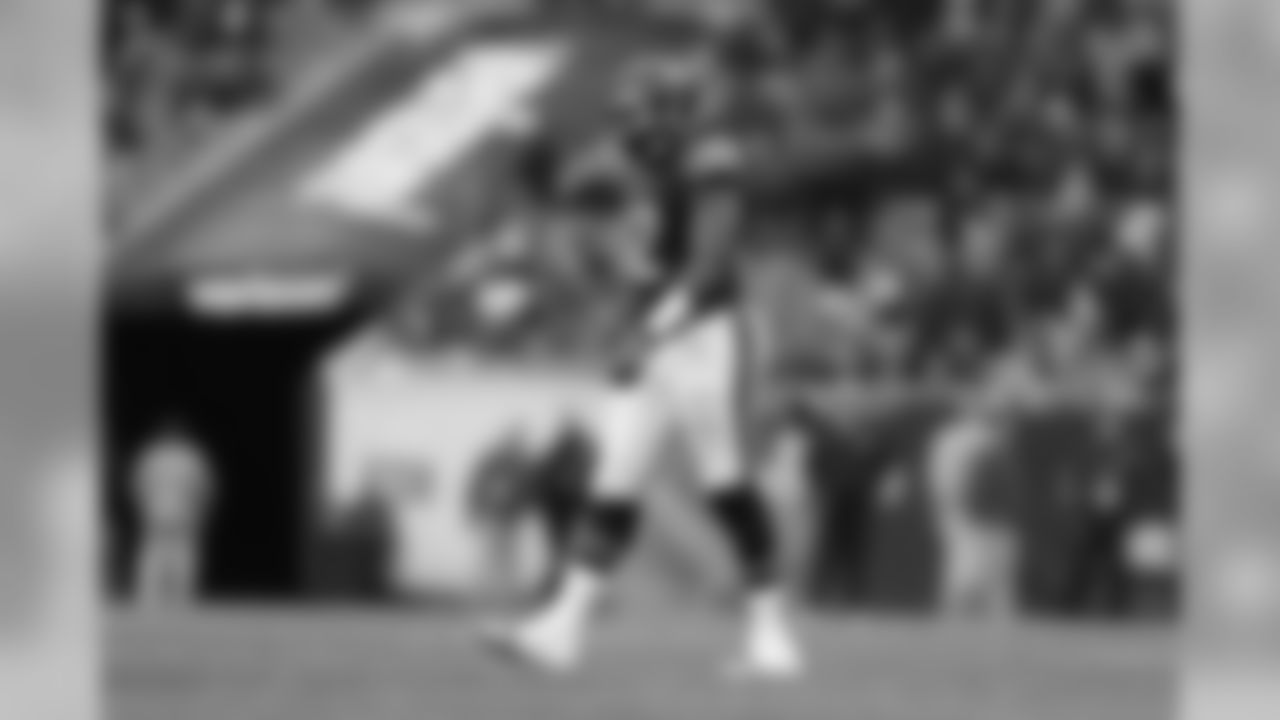
LB Pernell McPhee
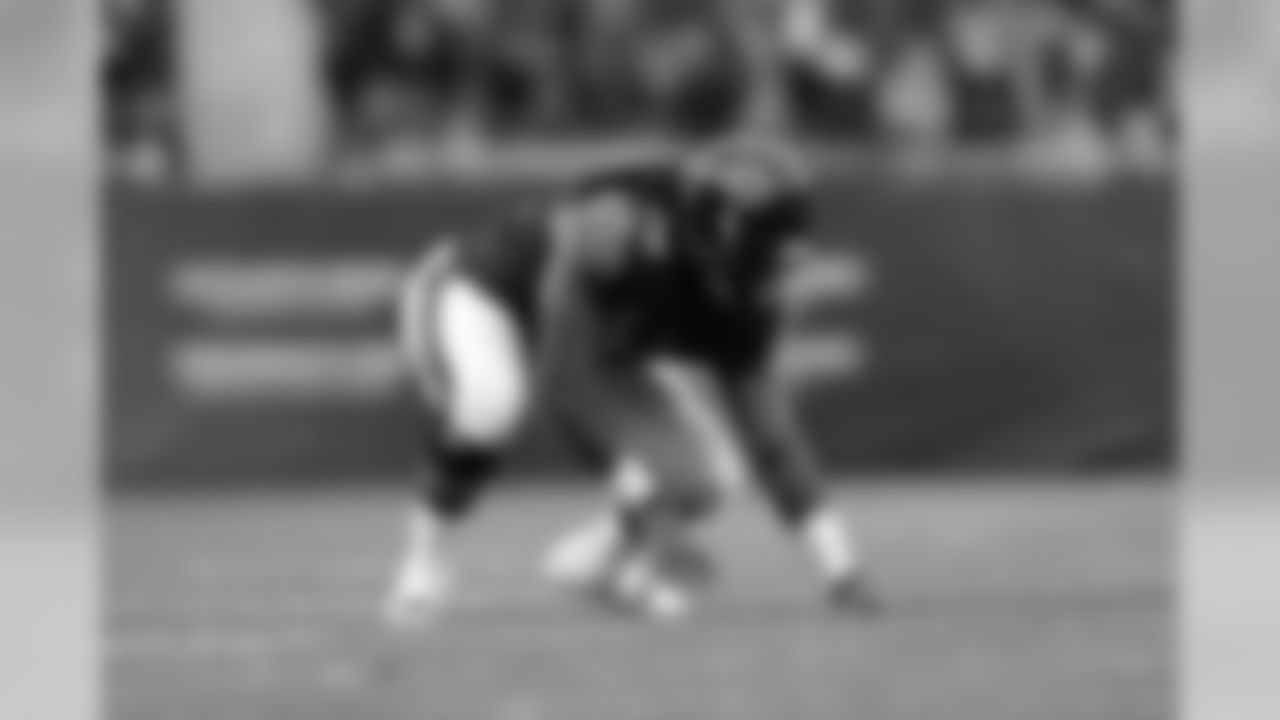
LB Pernell McPhee
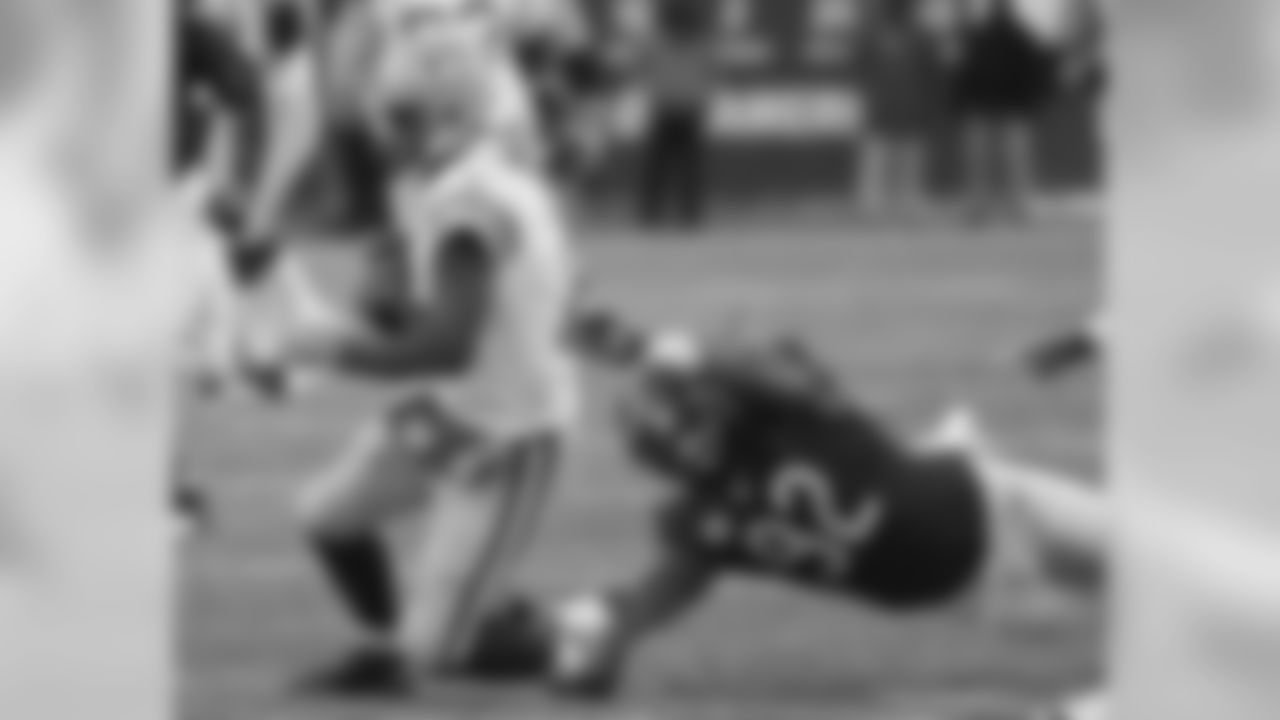
LB Pernell McPhee
The Tampa Bay Buccaneers have played more games against the Chicago Bears than any other team in the NFL. Viewed as a 41-season whole, that's better news for the Bears than the Buccaneers.
Tampa Bay joined the NFL in 1976 as its 27th franchise but played its first season in the AFC West, facing only AFC opponents that fall. In 1977, the Buccaneers were switched into the NFC Central, where they became twice-annual foes with the Bears (and the Packers, Lions and Vikings). It started out reasonably well, with the Bucs and Bears splitting their first four meetings…and then Chicago won 28 of the next 36.
As such, the all-time Tampa Bay-Chicago series still favors the men from the Windy City by a 2-1 margin (38-19), even though the Buccaneers have the overall edge since 1996, when their own franchise revival began. The most recent meeting was a dominant 36-10 decision for Tampa Bay at Raymond James Stadium last fall.
On Sunday, the Buccaneers will play the Bears for the fourth season in a row, an uncommon occurrence between non-division opponents under the rotational scheduling format that has been in place since 2002. That format was introduced after the league expanded to 32 teams and realigned into eight divisions, with the Buccaneers moving out of the NFC Central and into the new NFC South.
Moreover, this will mark the third straight year that the Bears have come to Tampa (presuming that is where the game is played in the aftermath of Hurricane Irma). The meetings in 2015 and 2016 were created by the Buccaneers and Bears finishing in the same spot in their respective division standings. This time around, Tampa Bay is playing the entire NFC North, and the Bears get another trip to Florida after the Bucs went to Chicago in 2014.
Last year's game broke from a recent tradition of close games, as the Buccaneers got an early pick-six from safety Chris Conte plus 312 passing yards and two touchdown tosses from quarterback Jameis Winston, who finished with a 104.7 passer rating. That game kicked off a five-game winning streak that put the Bucs in the thick of the NFC playoff race.
The three games before that, all Chicago wins, were one-score decisions, and you can find plenty of those in the shared history between the Bucs and the Bears, such as the 1982 season finale the Bucs won in overtime to squeak into the playoffs. Or the 13-7 shocker that Chicago, on its way to a 4-12 record, dealt a 1997 Buccaneers team that was about to break a 15-year playoff drought.
However, there have also been some massive blowouts. Tampa Bay's 41-0 whitewashing of the Bears in September of 2010 represents the largest margin by which the Buccaneers have ever won a game. On the other hand, when the Bears rolled over the Buccaneers, 44-9, at Tampa Stadium in 1984, it was the largest margin of defeat in a home game in Bucs history. Still is.
The Buccaneers' defense has pitched 10 shutouts in team history, and two of them were against the Bears (also in 2002), the only team they've blanked twice. On the other hand, Tampa Bay has been the victim of 28 shutouts through the years and the Bears own five of those, the most by any Buc foe. On the other end of that aforementioned spectrum, the Bucs and Bears combined for 77 points in a 42-35 Tampa Bay win in 1989. That's the fifth-most combined points ever in a Buccaneer game, but the most ever in a Buc home game and the most ever in a Tampa Bay victory.
Would you like to hear a little more about some of those games? You would? That's great…read on!
As mentioned, the Buccaneers and Bears were division foes from 1977-2001, as part of the then-five team NFC Central. During the expansion and realignment of 2002, the Buccaneers left their four Central partners and joined the new NFC South, and their old division was renamed the NFC North. Perhaps homesick, the Bucs would go back to Chicago that same year…or to be exact, Champaign, Illinois, where they won their regular-season finale and locked down a first-round bye on the way to Super Bowl glory. Soldier Field was under renovations at the time.
The new scheduling format that arrived along with realignment guaranteed that the Bucs would play their former NFC Central (now North) pals at least once every three years, alternating between home and away contests. That meant a 2005 trip to Tampa for the Bears, which Chicago won, 13-10, right before the Buccaneers went on a four-of-five tear to end the season and win the NFC South title. By the divisional rotation plan, the Bears should have also returned to Tampa in 2011, but that game was played in London. The next regularly-scheduled Bears-Bucs game at Raymond James Stadium would fall in 2017, but the Bucs also get a visit from Lovie Smith's old team because the two teams finished in the same spot in the standings in their respective divisions last year.
The all-time series between these two teams would look a lot less lopsided if one could simply excise a period of time, say 1983 to 1992, from the list. That decade was a bad match for the Buccaneers, who finished below .500 in each of those 10 campaigns. Meanwhile, Chicago was .500 or better in eight of those 10 campaigns and a double-digit-winning playoff-qualifying squad seven times. Not much more needs to be said about the Super Bowl Shuffling 1985 Bears, in particular; that squad sent almost everybody to ignominious defeat. Chicago won 12 straight in the series from '83 through '88, encountered a short blip in 1989 and then won five more from 1990-92. The Bucs will be trying to dig out of that hole in the all-time series for a long time.
Of course, we can no more ignore that decade than we can snip 1997-2000 out of the Bucs-Bears space-time continuum, as it were. The Bucs turned their fortunes around in 1997 and, as alluded to above, eventually won their own Super Bowl in 2002. For one very enjoyable stretch they took out their Bear-generated frustration six straight times, culminating in that cathartic 41-0 beat-down at Raymond James Stadium in 2000.
Before the wild Bear attacks of the 1980s, the series started out innocently enough. The Bucs first caught wind of the Bears in 1977, when the second-year expansion team was still looking for its first regular-season victory. Chicago didn't oblige, although both teams left it in doubt until the fourth quarter. Tampa Bay had 135 yards on the day, including 21 through the air with Randy Hedberg at the helm, and was perhaps hoping to wait the Bears out and win on a safety. There would be no such sweetness for the Buccaneers because Walter Payton capped his 101-yard day with a three-yard touchdown in the fourth quarter and the Bears won, 10-0. That would prove to be the end of the losing streak for the Buccaneers, however; the next week they would win in New Orleans, 33-14.
The Bucs would also score 33 points and win the next time they encountered the Bears. That was the very next season, again in Tampa. The home team was actually losing in the third quarter, 16-13, but then went on a barrage that included a Doug Williams touchdown run, a Doug Williams 40-yard touchdown pass to Morris Owens and a three-yard Johnny Davis TD plunge. This marked the first five-touchdown game in franchise history.
By this point, of course, the Bucs and Bears were playing twice a season in the NFC Central, and not all of those games were instant classics. In other words, we can skip ahead a bit from time to time. The Buccaneers' next victory in the series came during their 1979 breakout campaign, and it was noteworthy because it was the last game in the team's stunning five-game winning streak to start the season. It was also Tampa Bay's first win in Chicago, though it failed to start a trend in that regard. Tampa Bay's league-best defense eventually proved to be the difference in a 17-10 decision when Jeris White and Cedric Brown intercepted Vince Evans on the Bears' last two drives.
That win turned out to be critical in the tiebreaking scenarios when both teams finished 10-6 but the Bucs got the division title and the Bears got a Wild Card ticket to Philly, where their postseason quickly ended. Chicago punished the Buccaneers for that game by holding them scoreless for the next eight quarters, winning 14-0 in Tampa later in 1979 and 23-0 in Chicago the next year. That latter defeat was a little more disappointing than the first one because it came on the Buccaneers' Monday Night Football debut. Payton ran for 134 yards, the Bears' defense pounded Williams with four sacks and a penalty wiped out a late Jimmie Giles touchdown to keep the shutout intact.
Virtually everyone was in contention in 1982, when a players' strike shortened the season to nine games each and the playoffs were expanded and repackaged as a 16-team "Super Bowl Tournament." And thus it was that the Buccaneers were 4-4 heading into a January 2 season finale against Chicago, and every much alive in the playoff race. The Bucs knew they couldn't catch the 5-2-1 Packers, but the divisions were all lumped together into one set of standings in each conference, and there were a whole mess of teams right around .500. The Buccaneers drew the 3-5 Bears for the last game and that didn't prove to be much of an advantage when they fell behind, 26-3 in the third quarter. Williams and Giles then hooked up for TD passes of 35 and 31 yards and K Bill Capece had the best game of his up-and-down Buc career with four field goals, including the 33-yarder in overtime to win it.
And then came the misery. The onslaught wasn't obvious right away, as the next game, in the second week of the next season, was a nail-biter. Williams had exited the building and the Bucs were trying out Jerry Golsteyn under center before handing it over to trade acquisition Jack Thompson. Golsteyn actually had a pretty big day, with 277 yards on 42 passes, but Payton took a short pass and ran 73 yards for a touchdown and the Bears broke a 10-10 tie in the fourth quarter on a pick-six by Terry Schmidt.
But then the Bears started to build their juggernaut and they posted lopsided wins of 27-0, 34-14 and 44-9 over the next season-and-a-half. On opening day of 1985, the Bears beat the Bucs by a 38-28 score after Tampa Bay forged a 28-17 lead at halftime at Soldier Field. Two plays into the third quarter, however, Richard Dent deflected a Steve DeBerg pass and current Buccaneers Defensive Coordinator Leslie Frazier caught it and returned it 29 yards for a touchdown. The second half was all Chicago but as it turned out the Bucs' 28 points were the most Chicago would give up in any of its 18 wins that year (Miami hung 38 on them in the Bears' only loss).
If that was a moral victory for the Buccaneers, it was the only kind they got against the Bears during the mid-80s. So let's do that aforementioned skipping ahead, with the 1989 aberration as our target. We'll just drop in briefly on an October meeting in 1987, which happened to be the first game back for the regular players after replacements were used for three weeks during a strike. DeBerg came back with a hot hand and had the Bucs up by 12 points heading into the fourth quarter. Unfortunately, Jim McMahon led two long scoring drives in the final period, leaping in for the score on the first one and throwing a six-yard TD pass to RB Neal Anderson for the game-winner in a 27-26 final.
In 1989, Ray Perkins' third year at the helm, the Buccaneers broke their losing streak against the Bears and in fact got their only two-game season sweep in the series. The games were wild, with the two teams combining for 140 total points. In Tampa in October, each team scored two touchdowns in the fourth quarter and the Bucs came out on top, 42-35. RB Lars Tate had his best day as a Buccaneer, rushing for 112 yards and two touchdowns on just 18 carries to outdo Anderson (86 yards, three TDs). WR's Mark Carrier and Bruce Hill finished with nearly identical lines, each catching six passes and scoring once with Hill getting 107 yards to Carrier's 105. The two teams met again in Chicago in November and this time it was even crazier in the fourth quarter and even closer at the end. In fact, the two teams combined for 40 points in the final period, and while 21 of those 40 went to Chicago, the Bucs still escaped with a 32-31 win on Donald Igwebuike's 28-yard field goal as time expired.
Chicago won the next five, including a 27-0 shutout at Soldier Field in 1991 in which they held Tampa Bay's offense to 106 total yards, the seventh-lowest mark in team history. The Bucs' next win came in the second meeting of 1992, in Tampa. RB Reggie Cobb ran for 114 yards and a score and helped the Bucs jump out to a 20-0 halftime lead. That proved to be just enough, as the Bears stormed back but missed a chance to tie it when K Kevin Butler misfired on a 44-yard field goal try at the end of regulation.
Photos of the Buccaneers' complete roster.

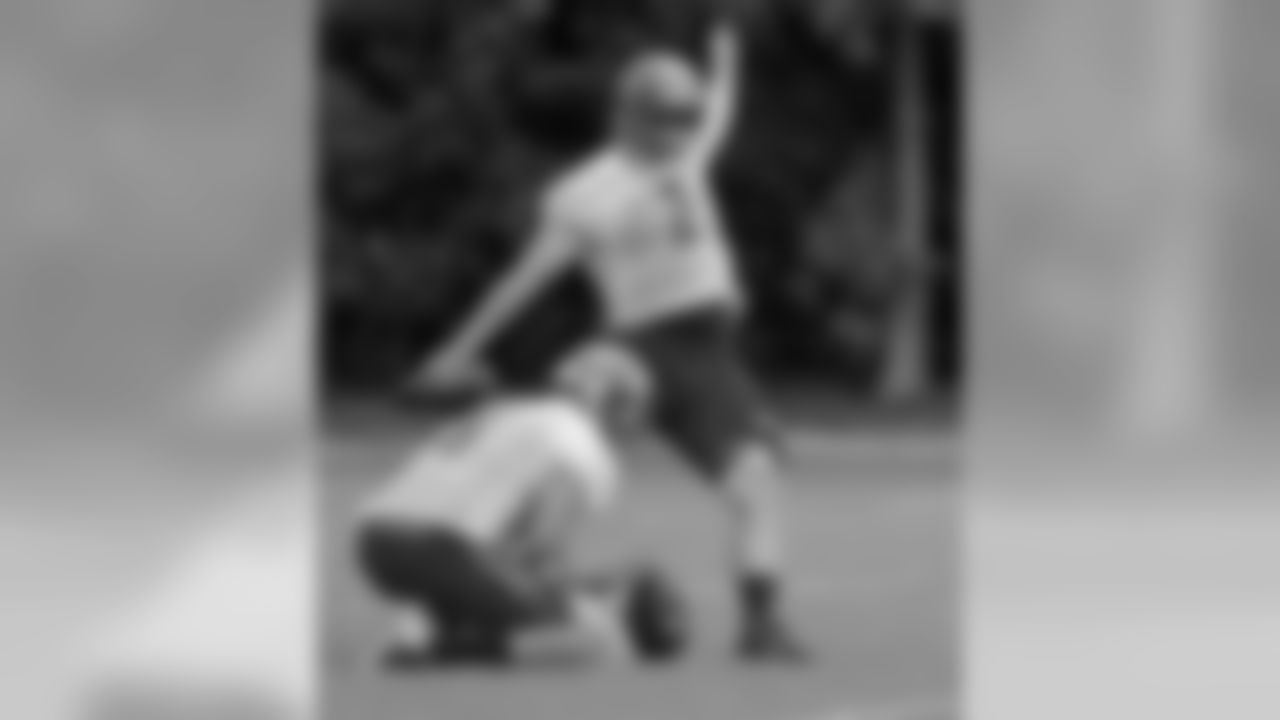
2 K Nick Folk
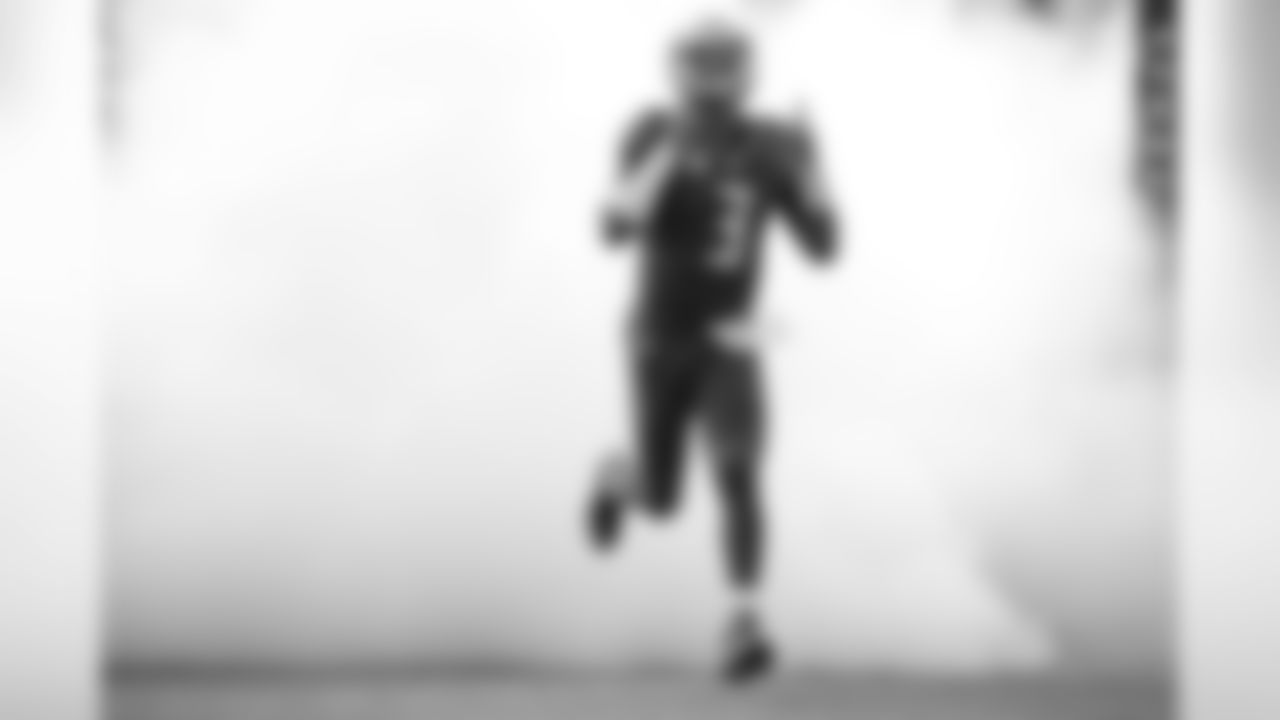
3 QB Jameis Winston
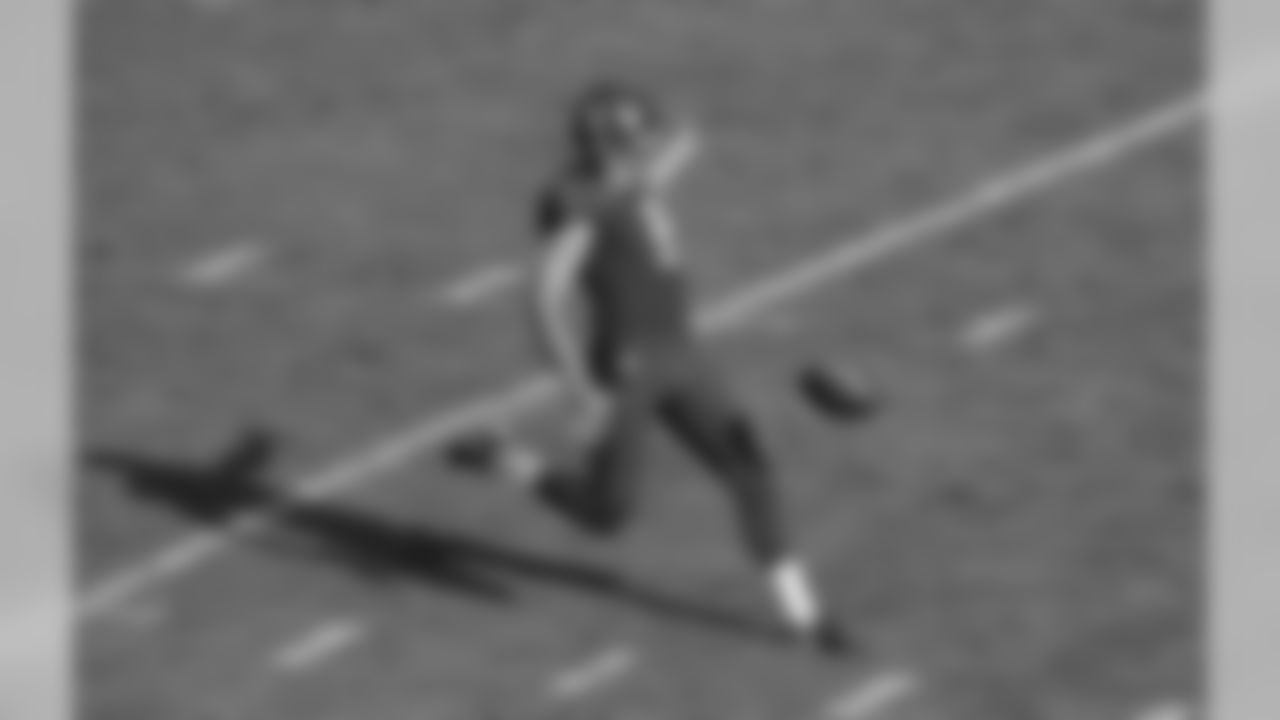
9 P Bryan Anger

10 WR Adam Humphries

11 WR DeSean Jackson

12 WR Chris Godwin
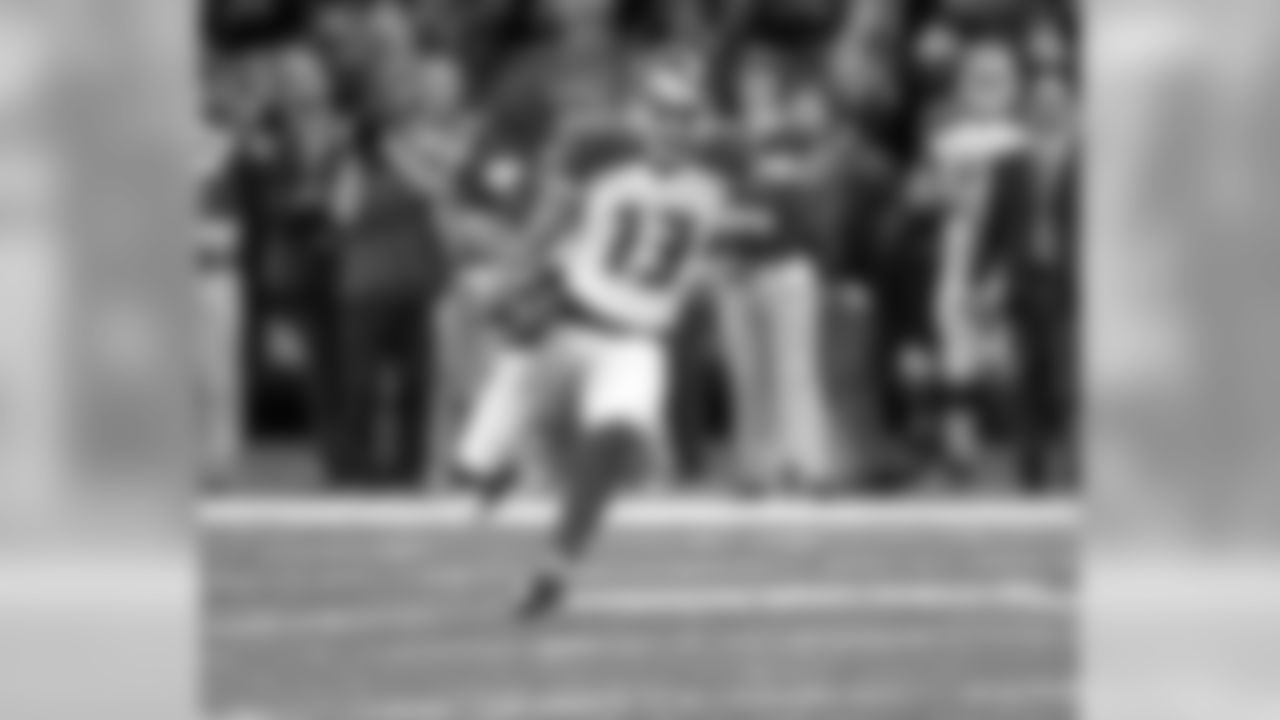
13 WR Mike Evans
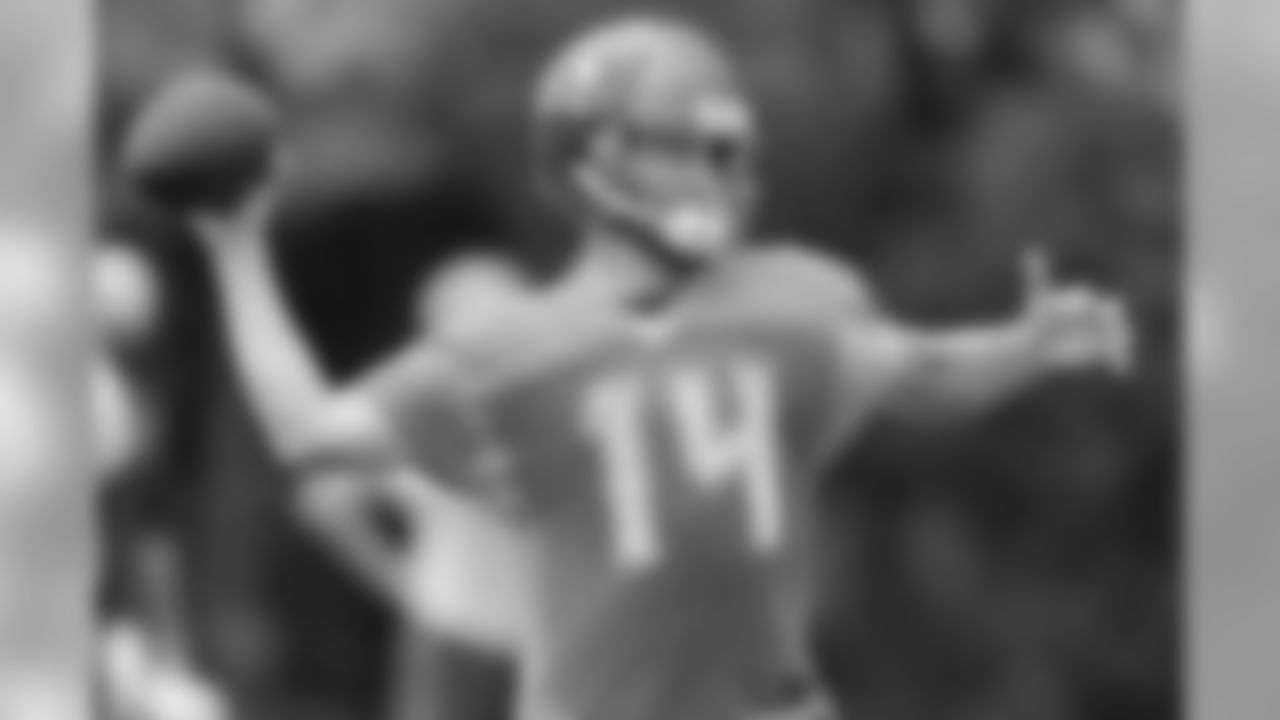
14 QB Ryan Fitzpatrick
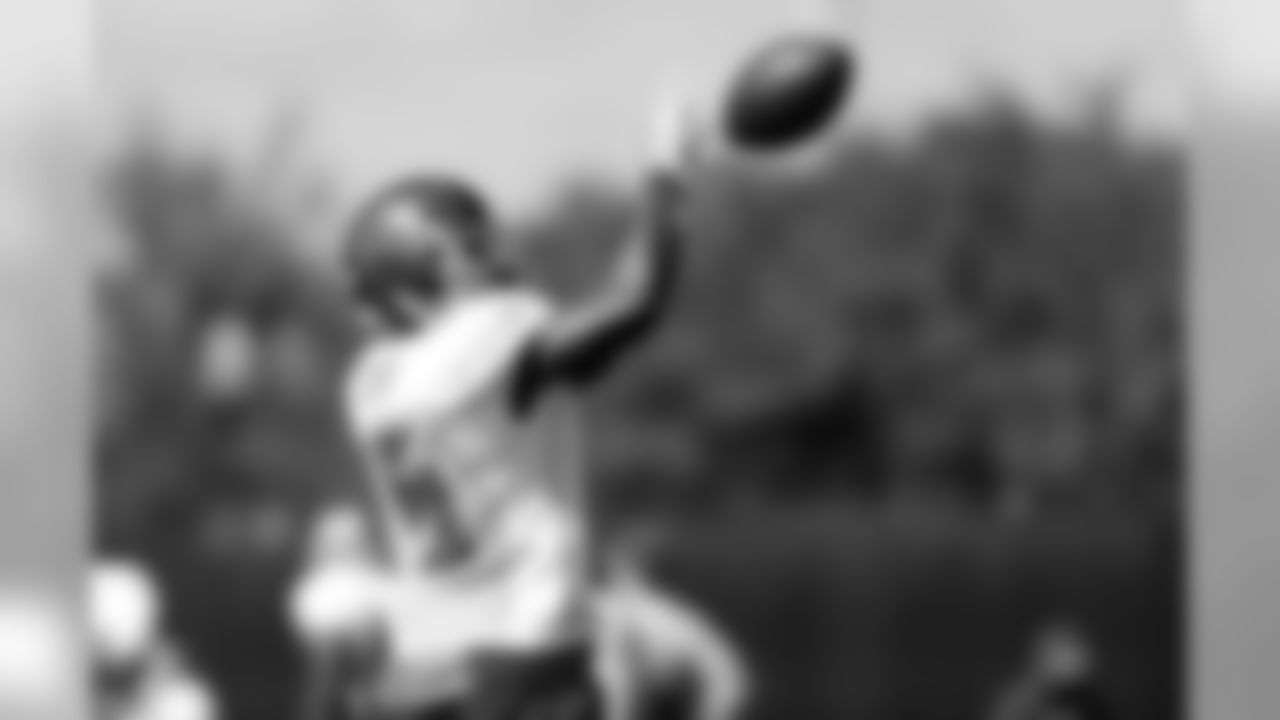
18 WR Bernard Reedy
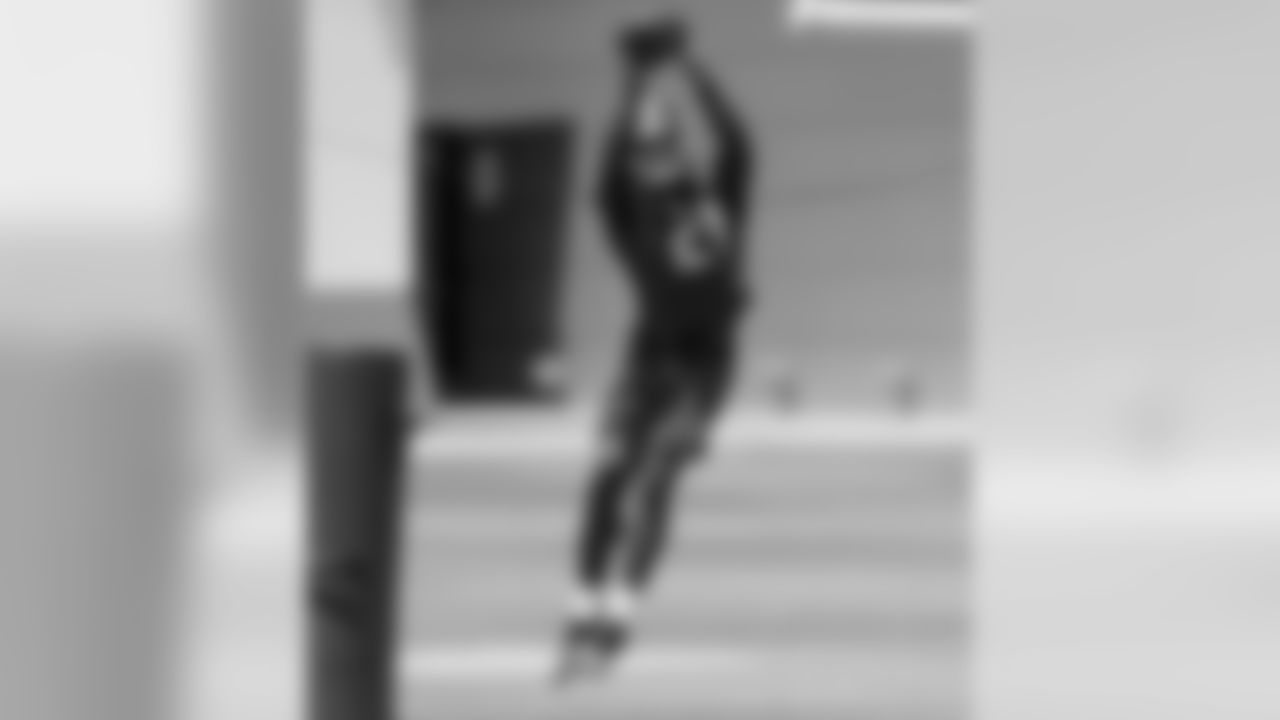
21 S Justin Evans
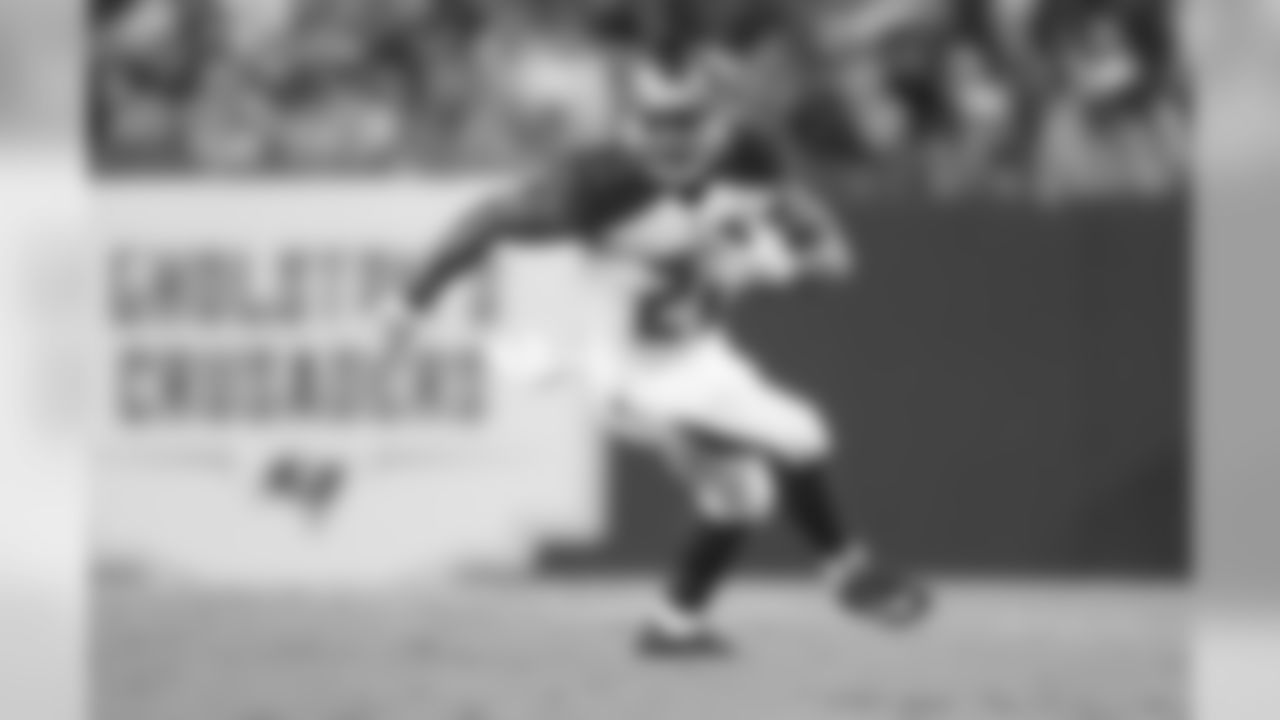
22 RB Doug Martin
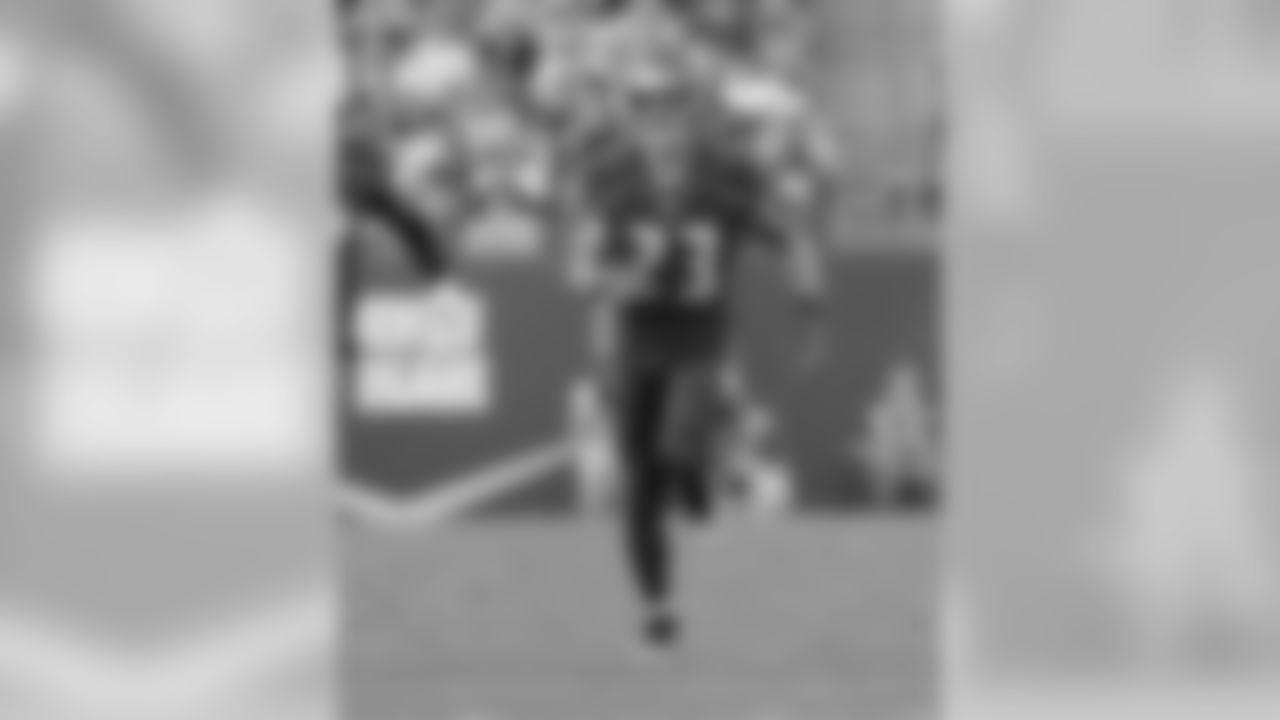
23 S Chris Conte
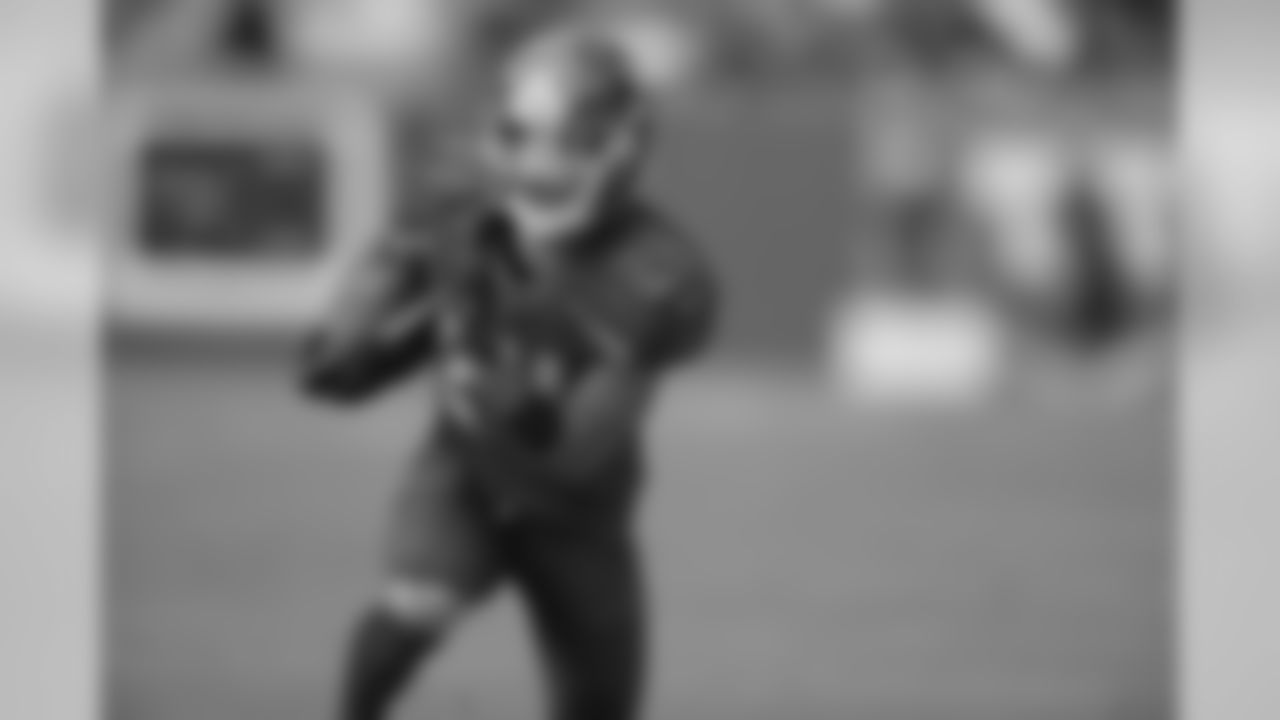
24 CB Brent Grimes
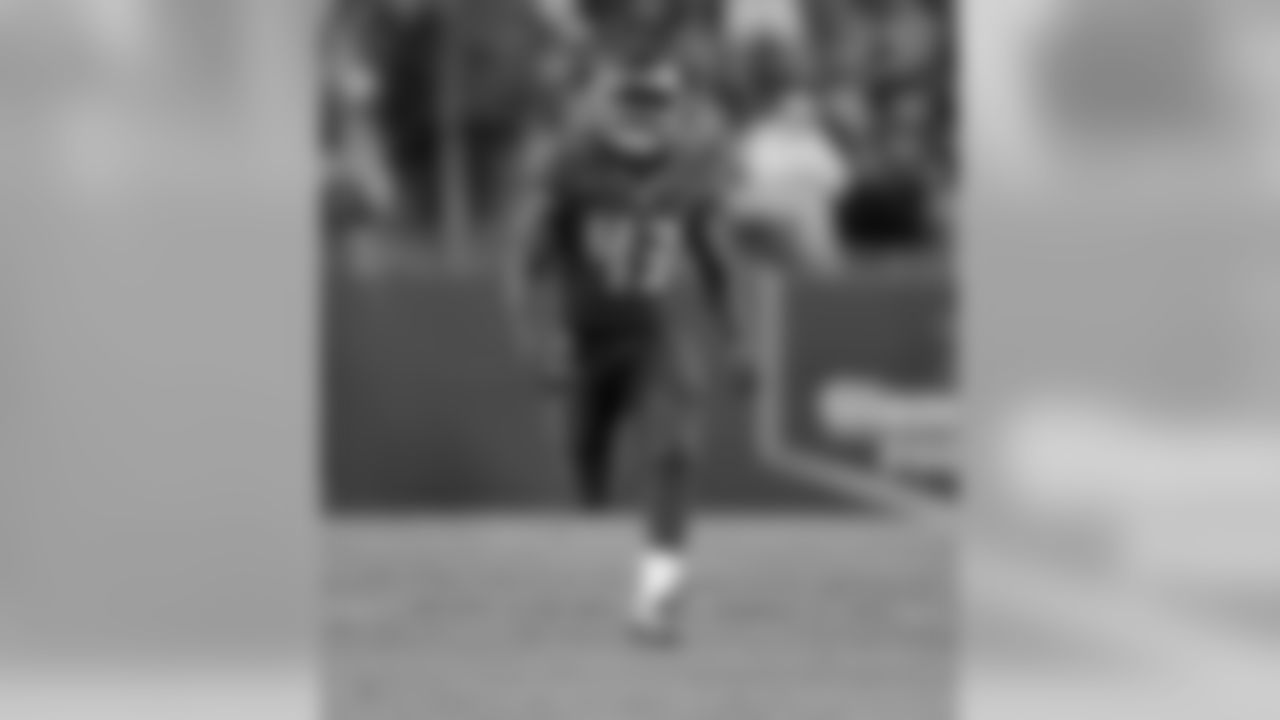
25 RB Peyton Barber
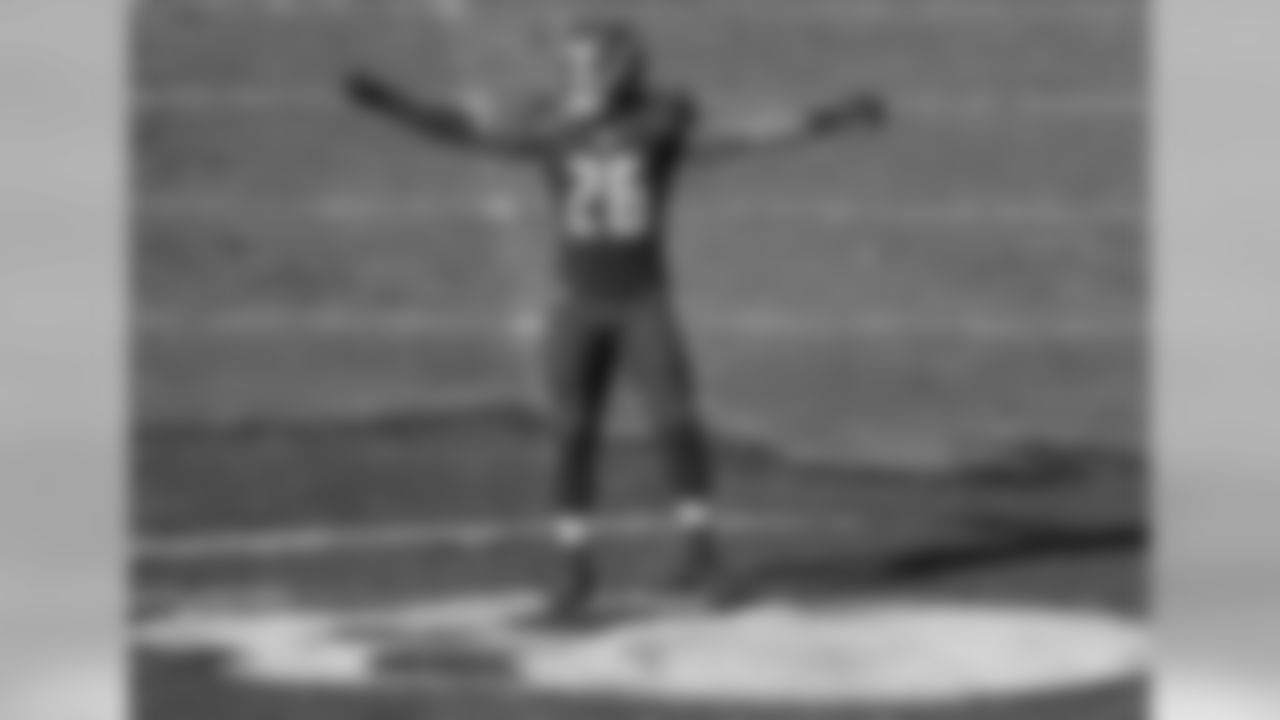
26 CB Josh Robinson
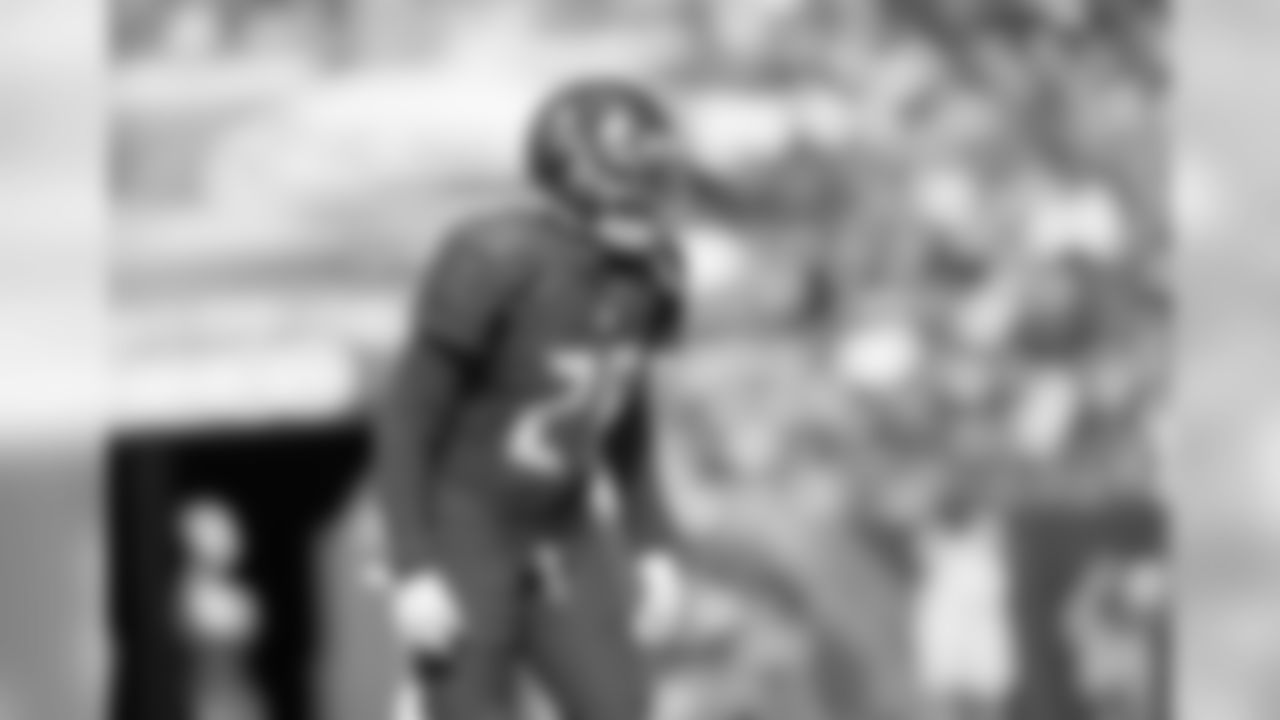
28 CB Vernon Hargreaves

29 DB Ryan Smith
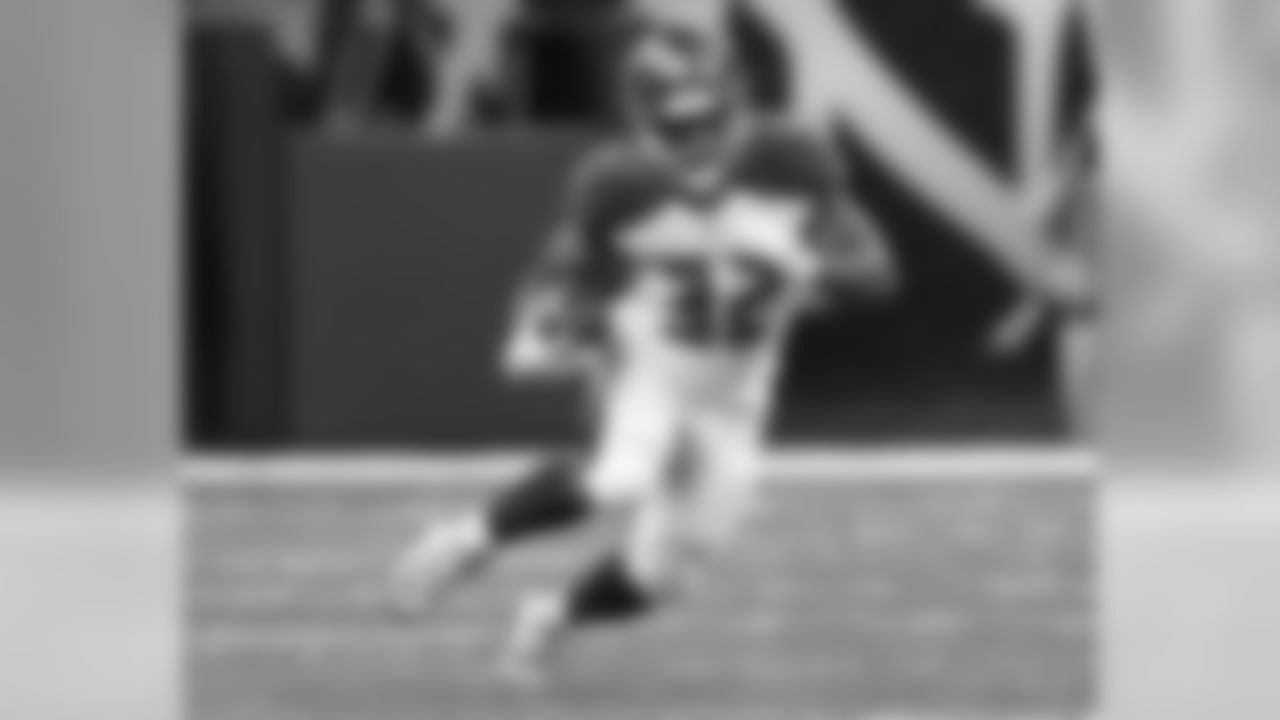
32 RB Jacquizz Rodgers
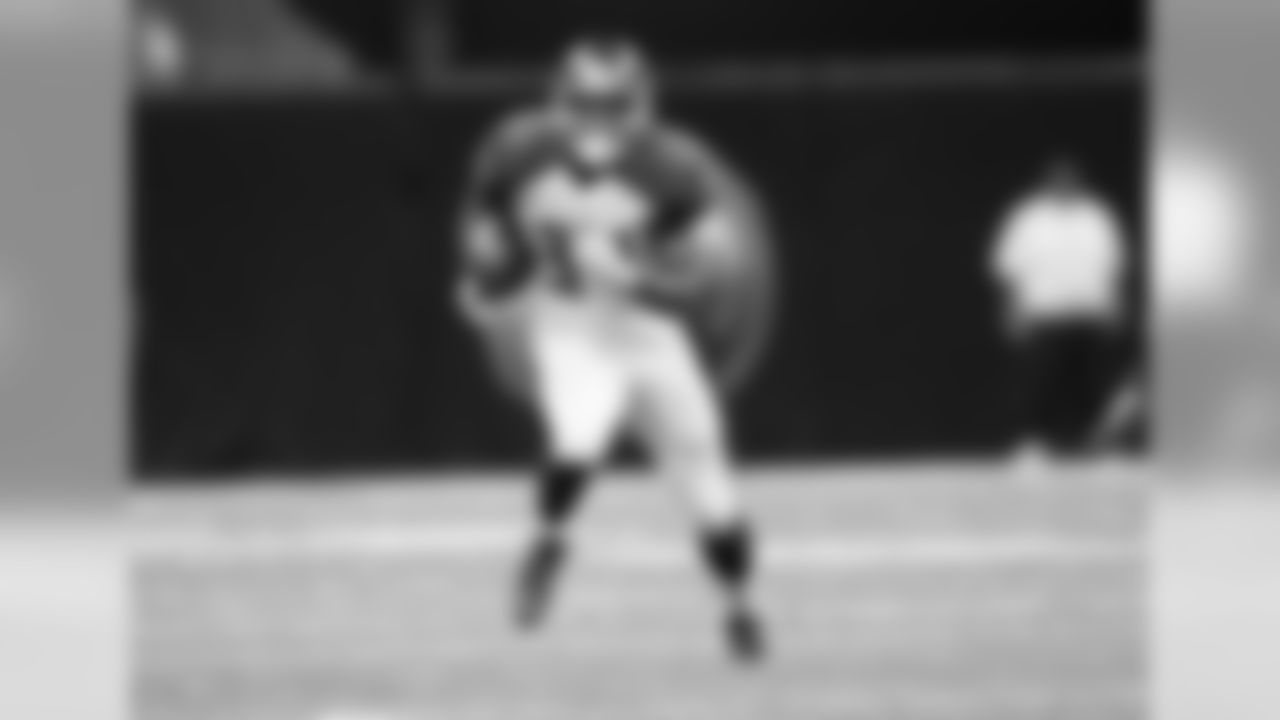
34 RB Charles Sims

35 CB Javien Elliott
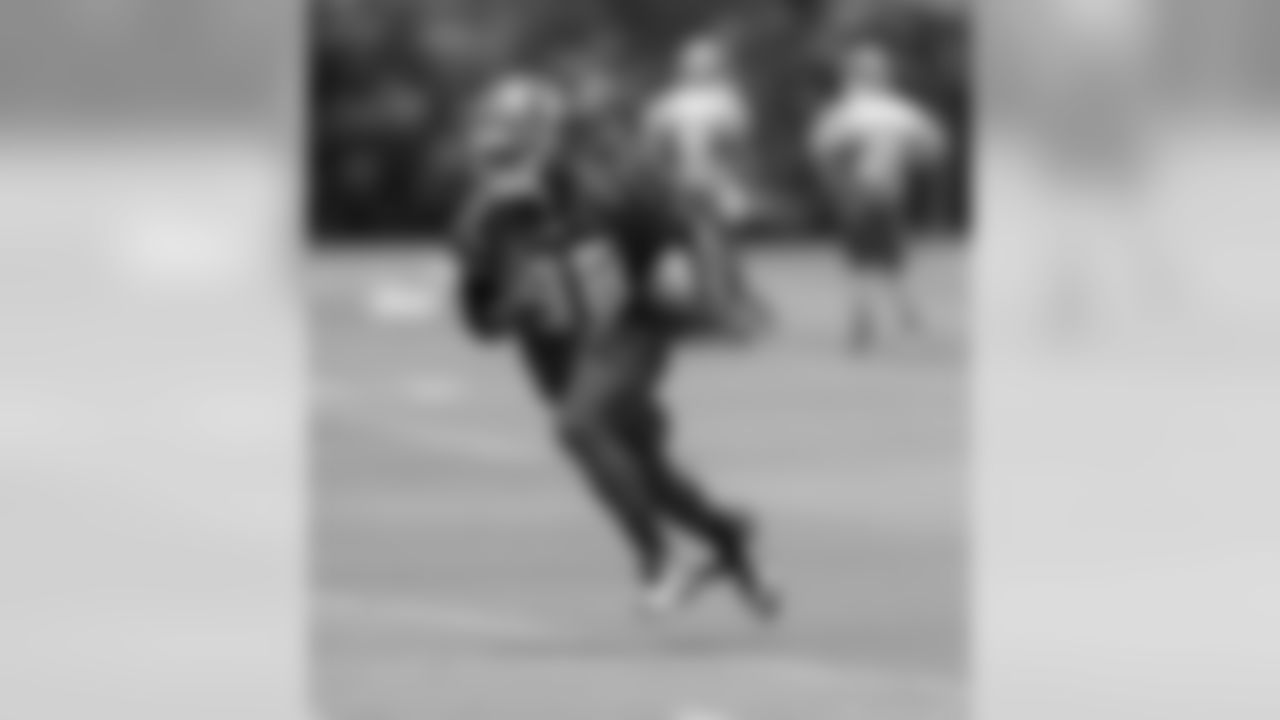
36 CB Robert McClain
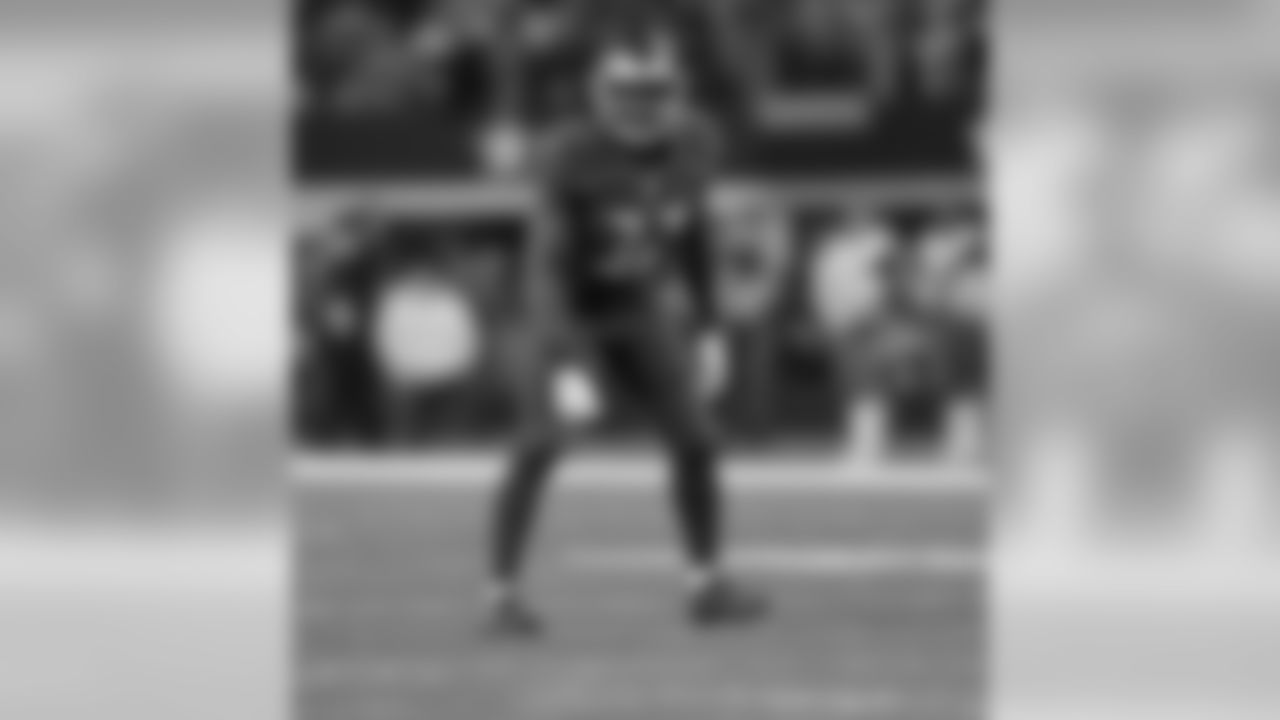
37 S Keith Tandy
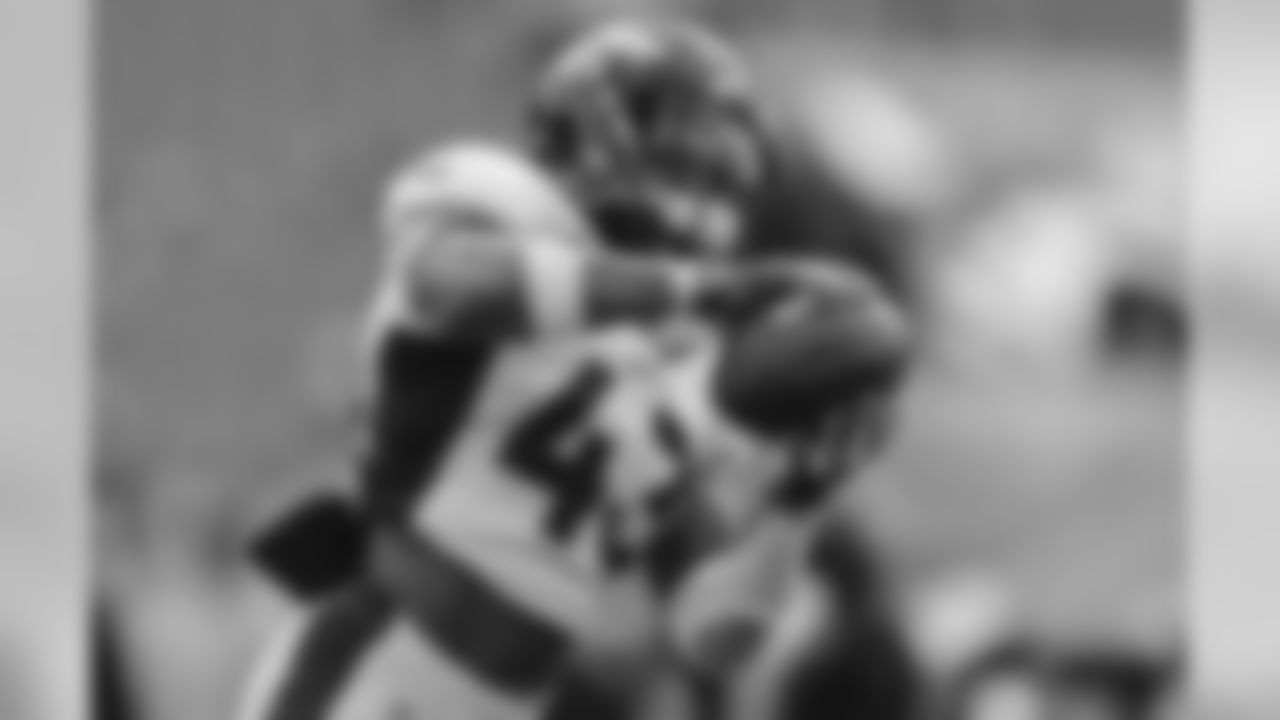
43 S T.J. Ward
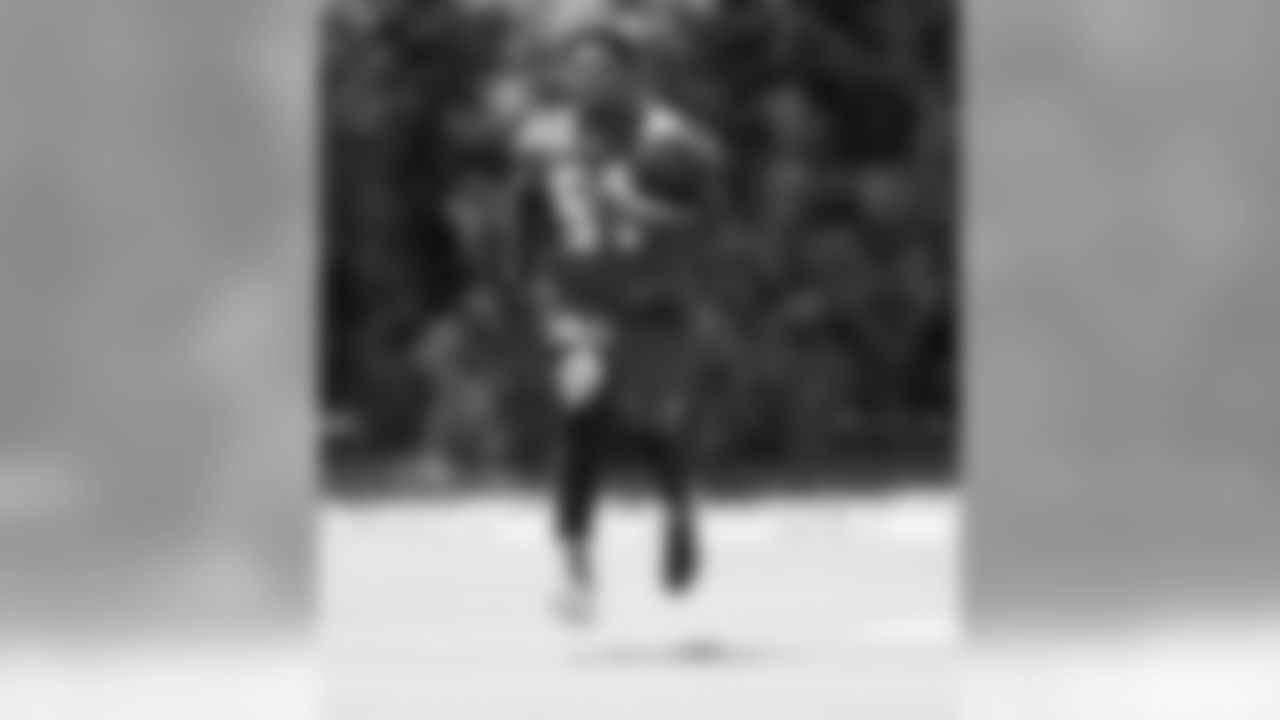
51 LB Kendell Beckwith
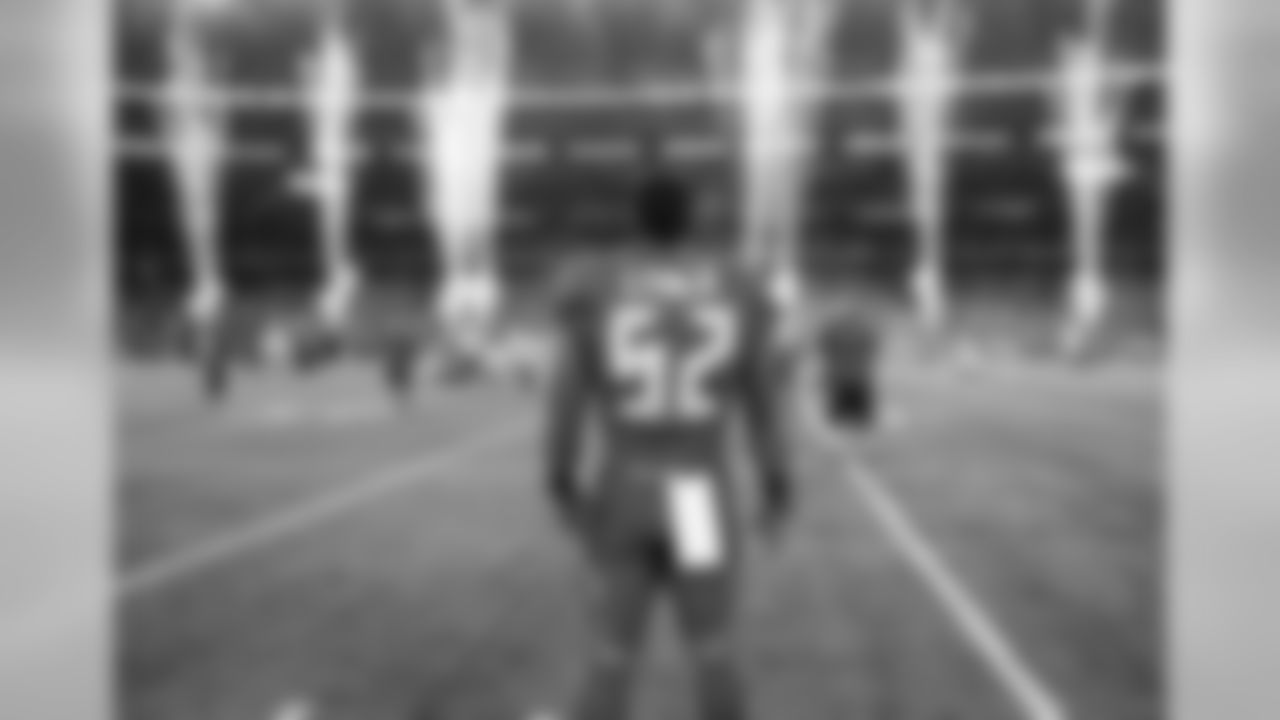
52 LB Cameron Lynch
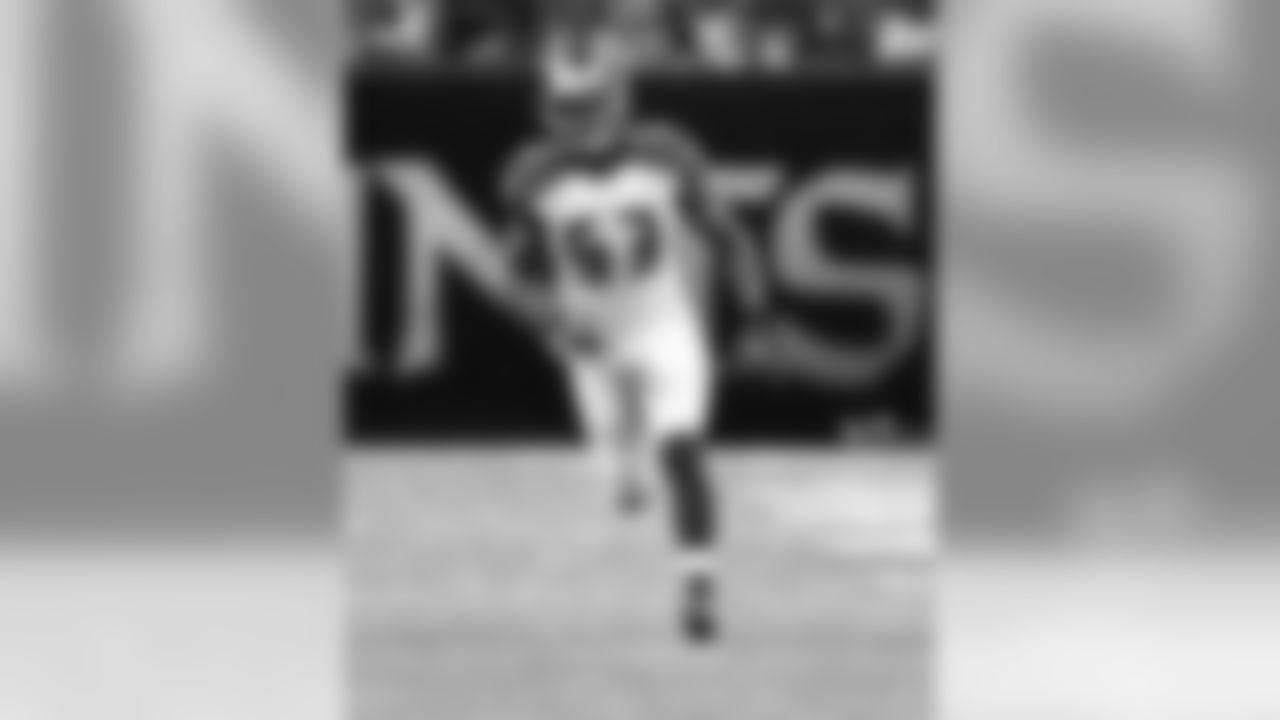
53 LB Adarius Glanton

54 LB Lavonte David
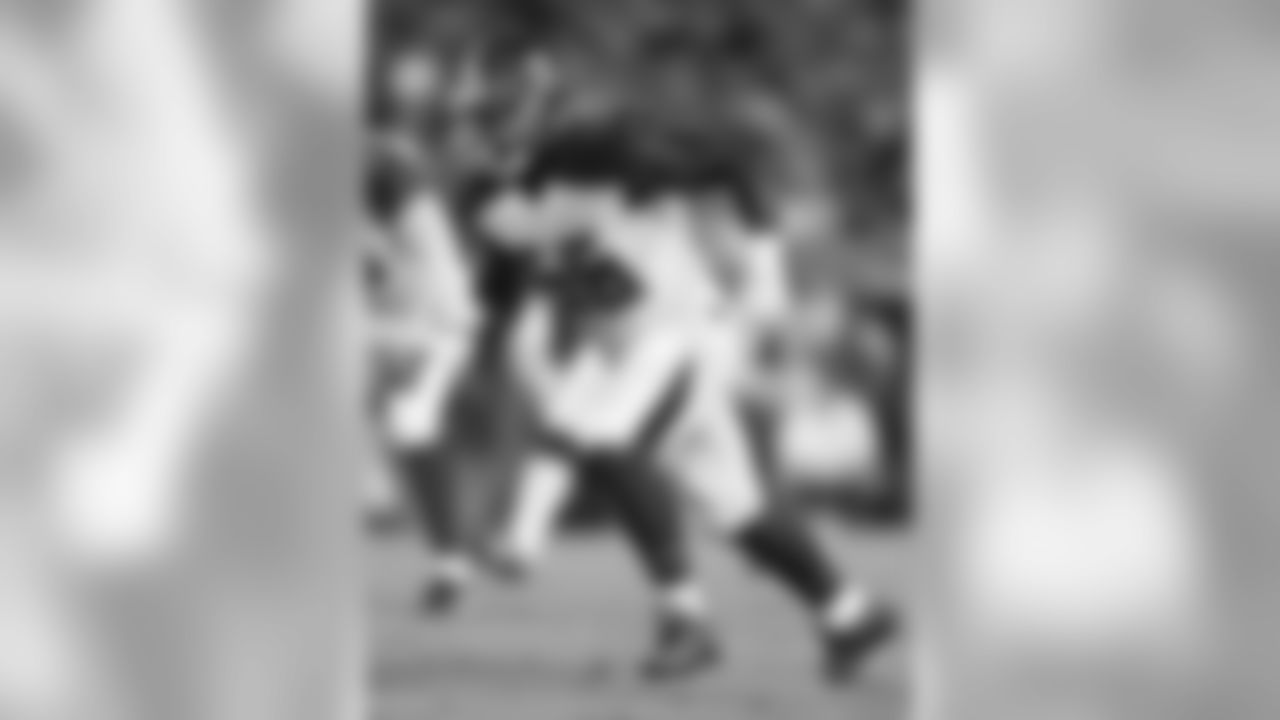
56 DE Jacquies Smith
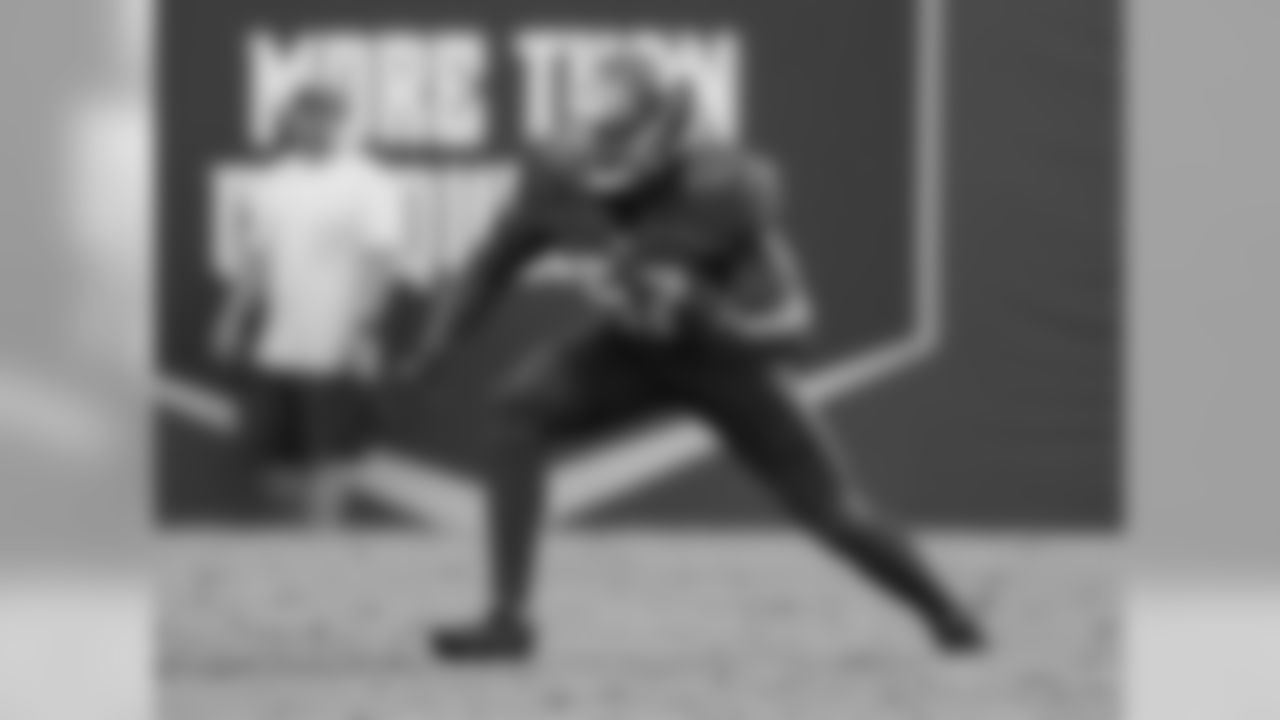
57 DE Noah Spence
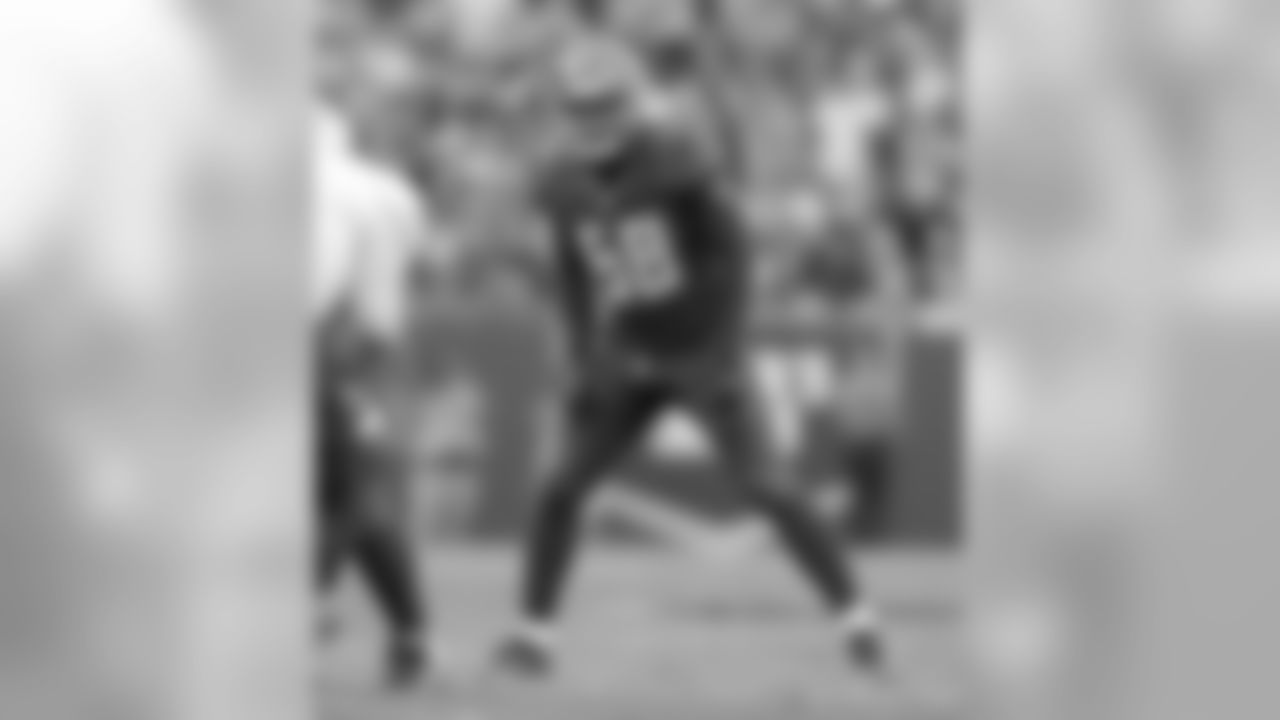
58 LB Kwon Alexander
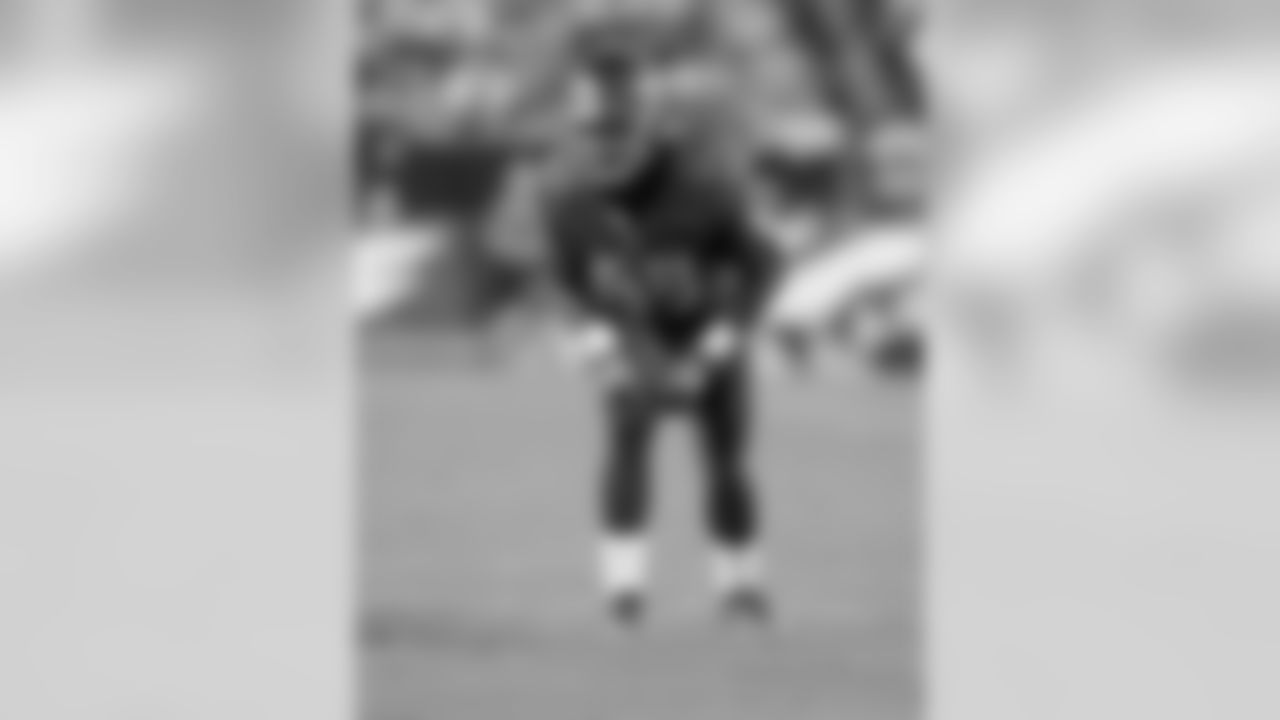
59 LB Devante Bond
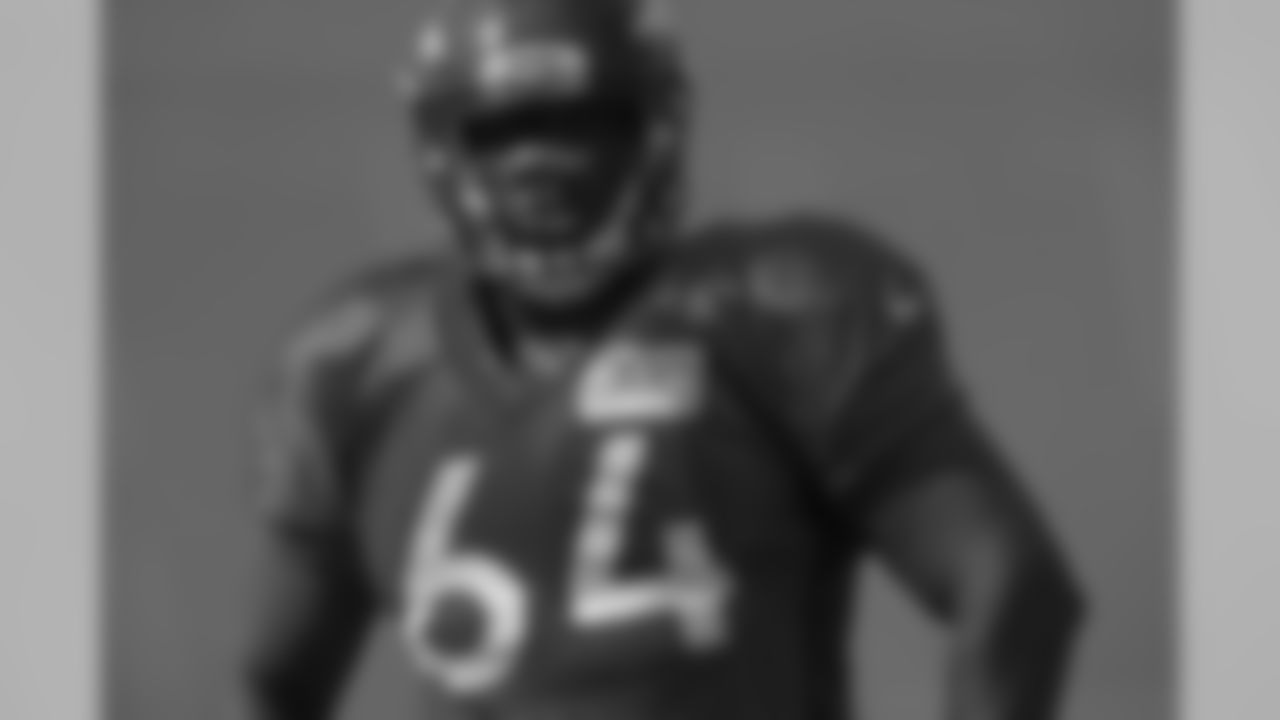
61 OT Justin Murray
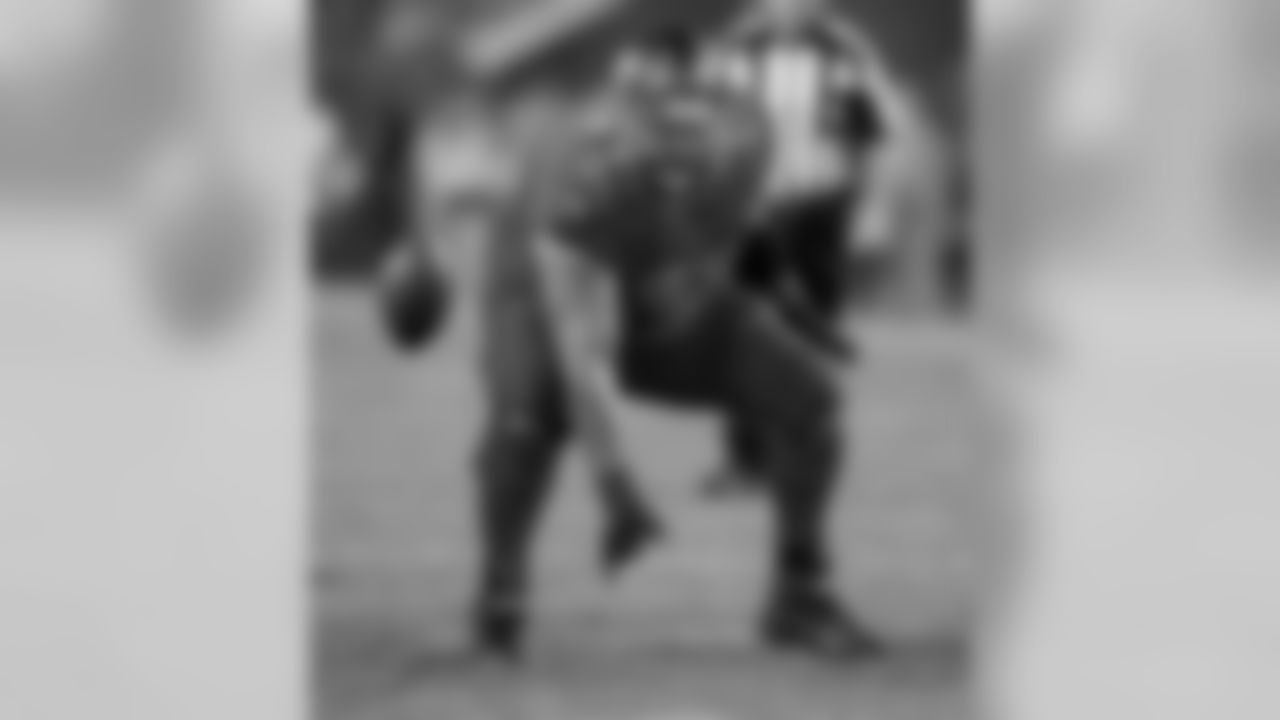
62 C Evan Smith
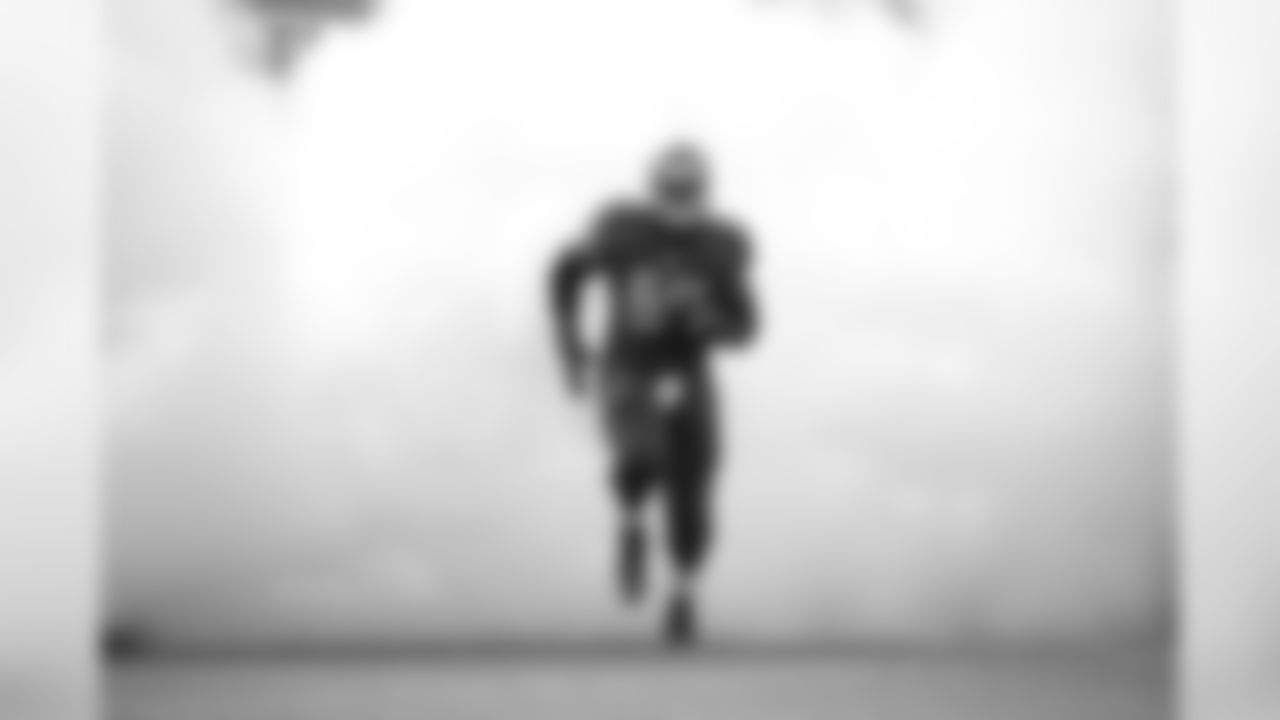
64 OT Kevin Pamphile

65 LS Garrison Sanborn
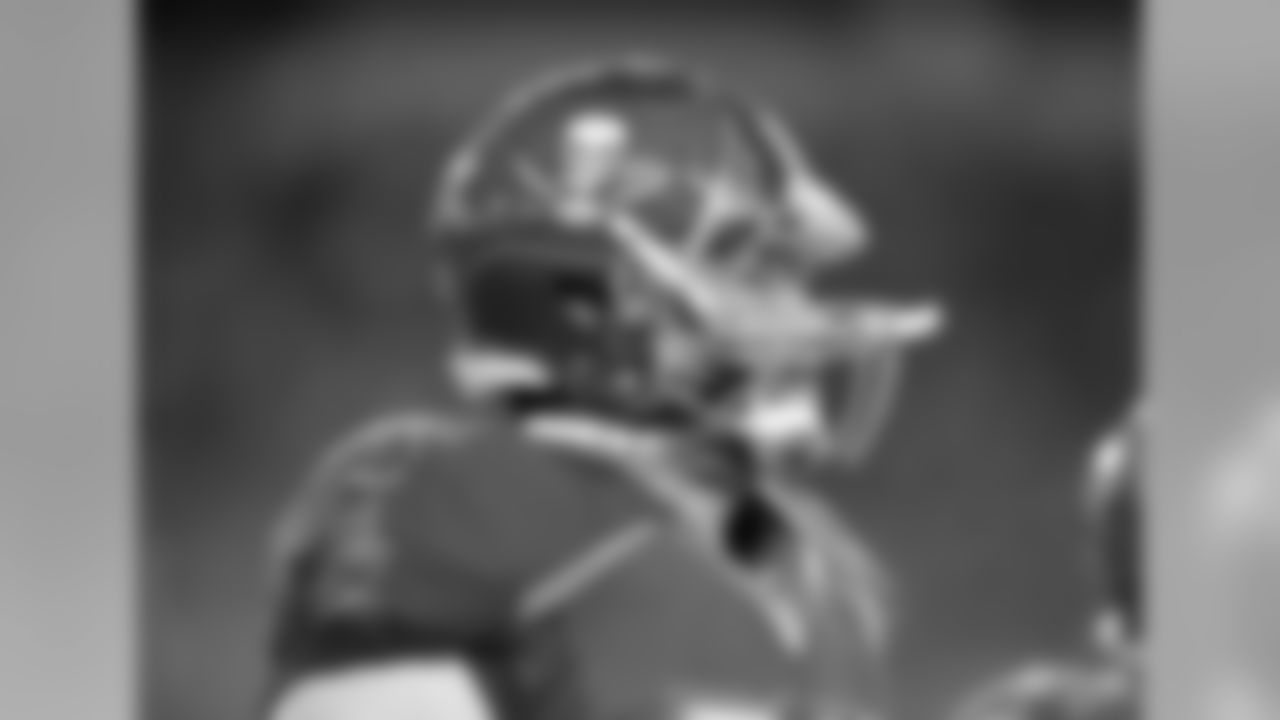
66 OT Leonard Wester

68 C Joe Hawley

69 OT Demar Dotson

73 G J.R. Sweezy
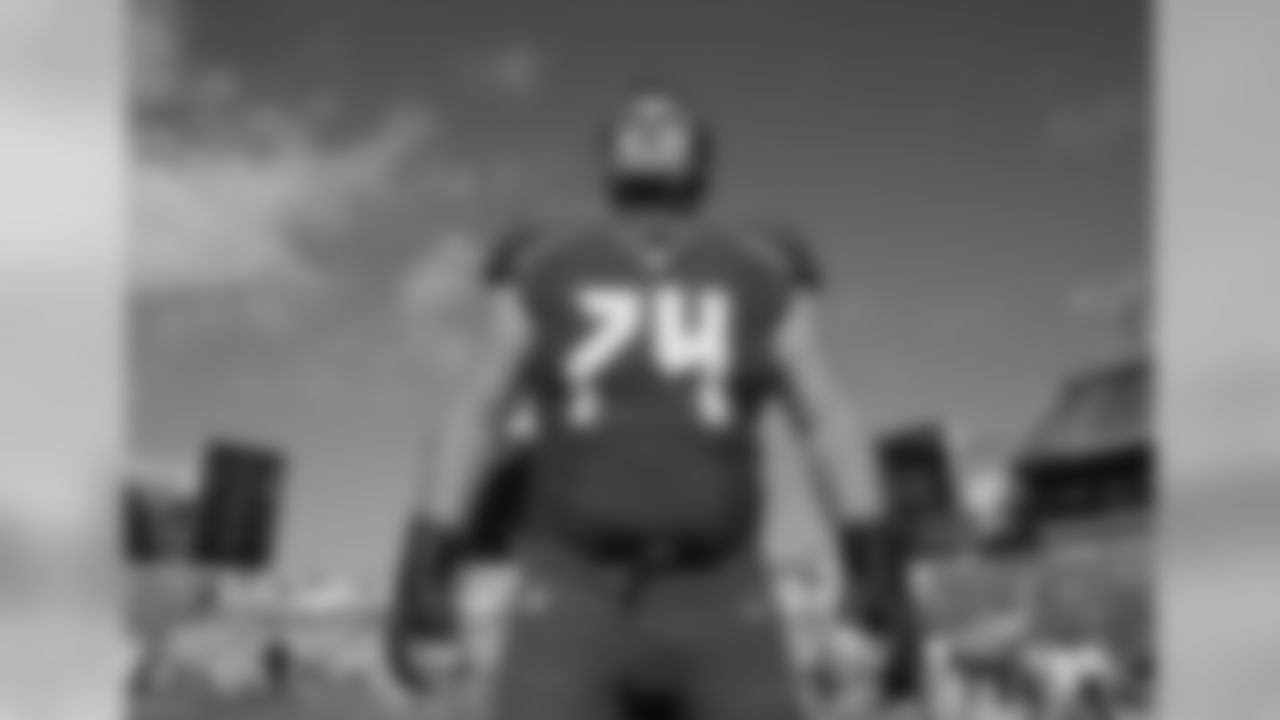
74 G Ali Marpet

76 OT Donovan Smith
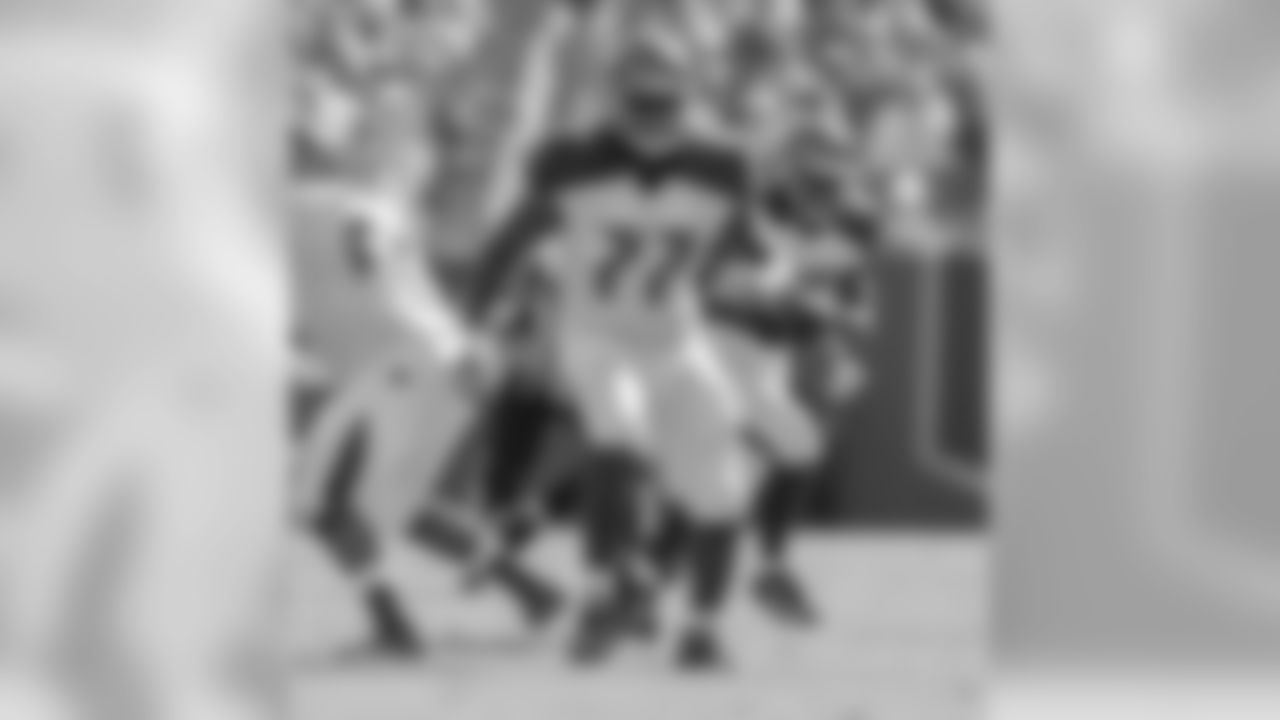
77 OL Caleb Benenoch
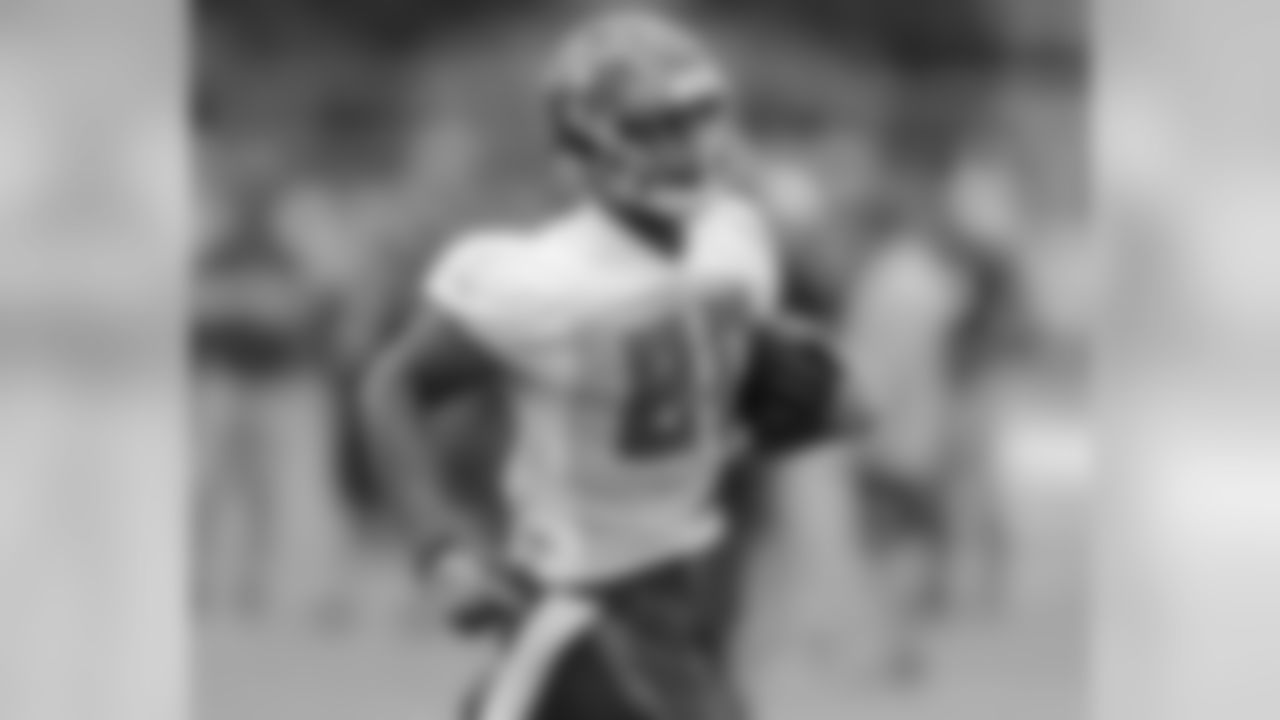
80 TE O.J. Howard
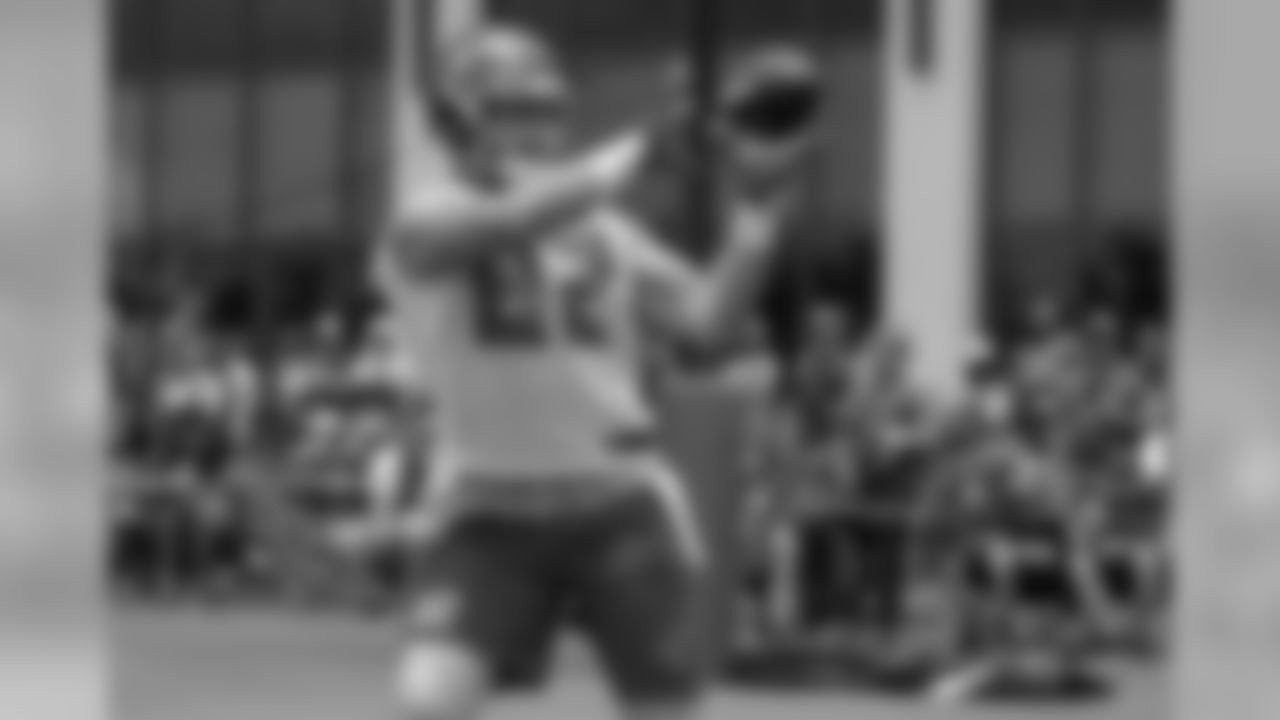
82 TE Antony Auclair
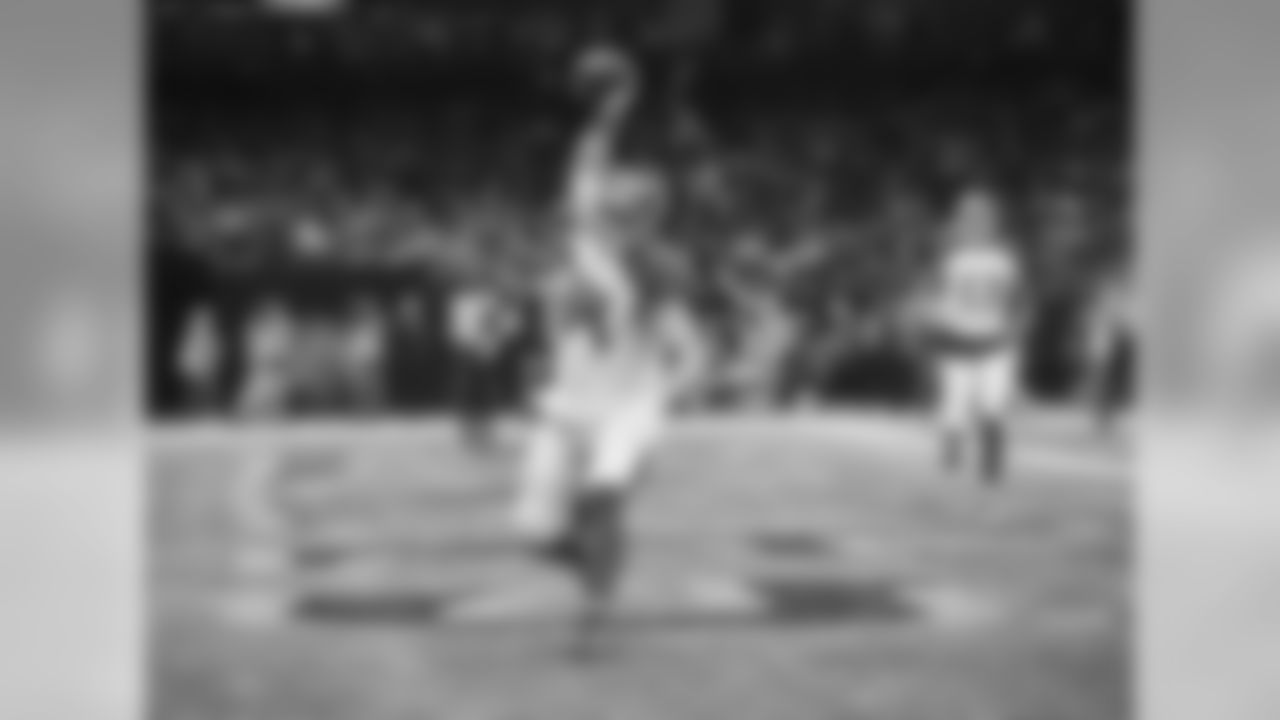
84 TE Cameron Brate

88 TE Luke Stocker

90 DE Chris Baker
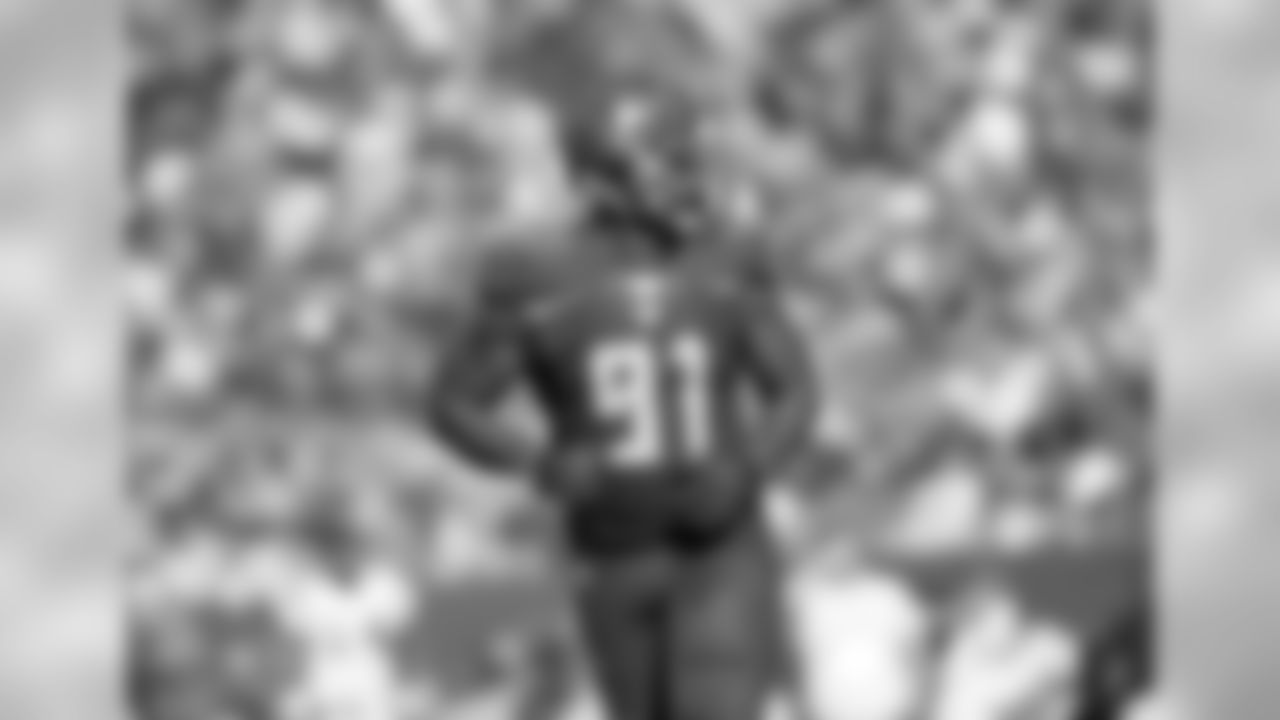
91 DE Robert Ayers
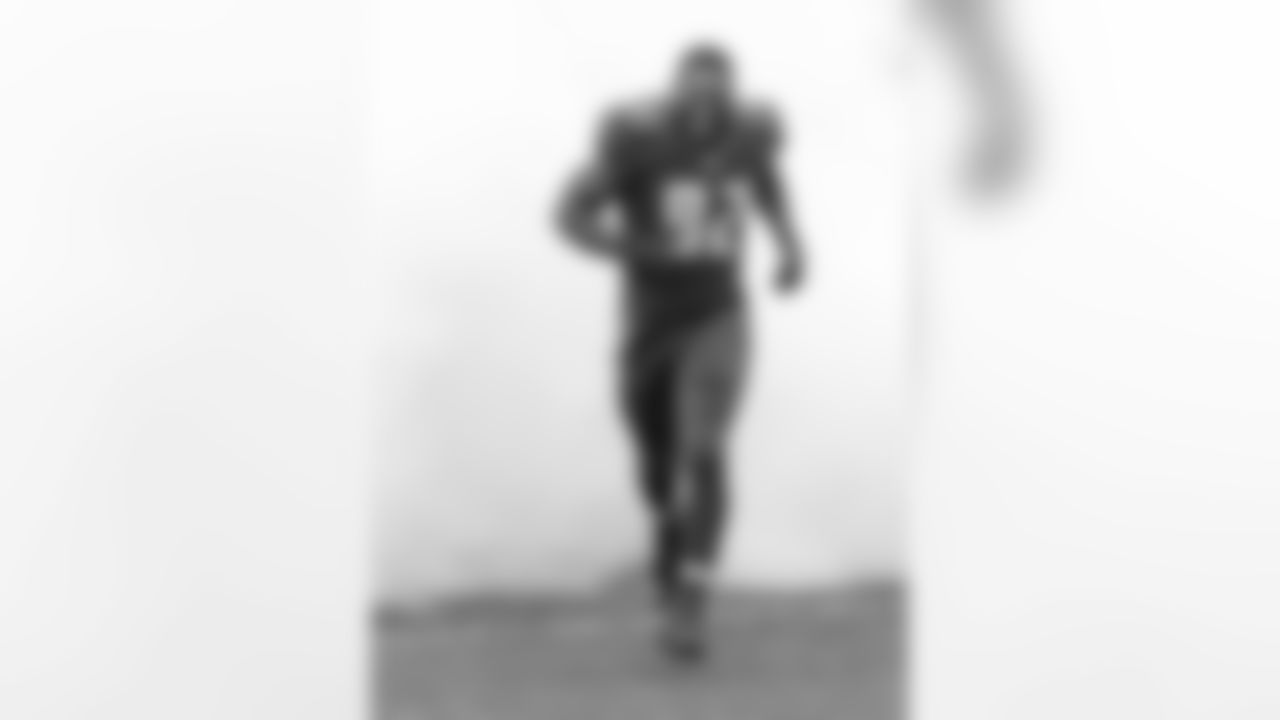
92 DE William Gholston

93 DT Gerald McCoy
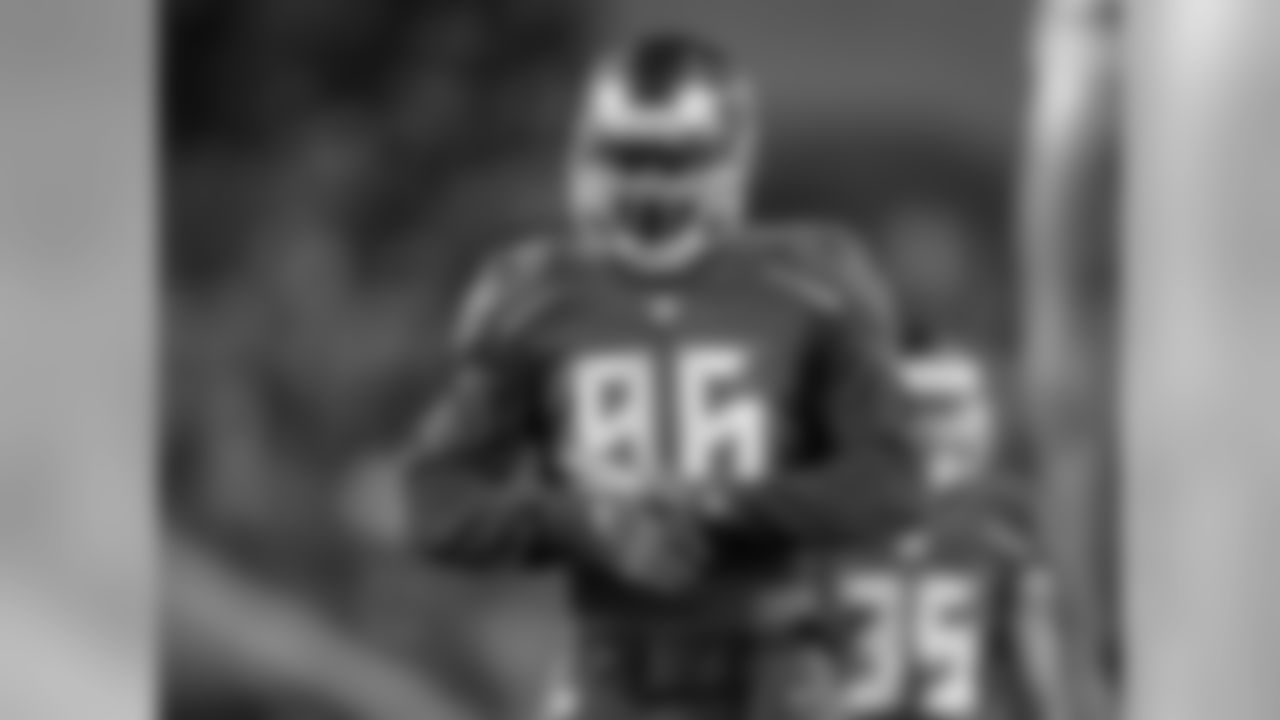
95 DE Ryan Russell
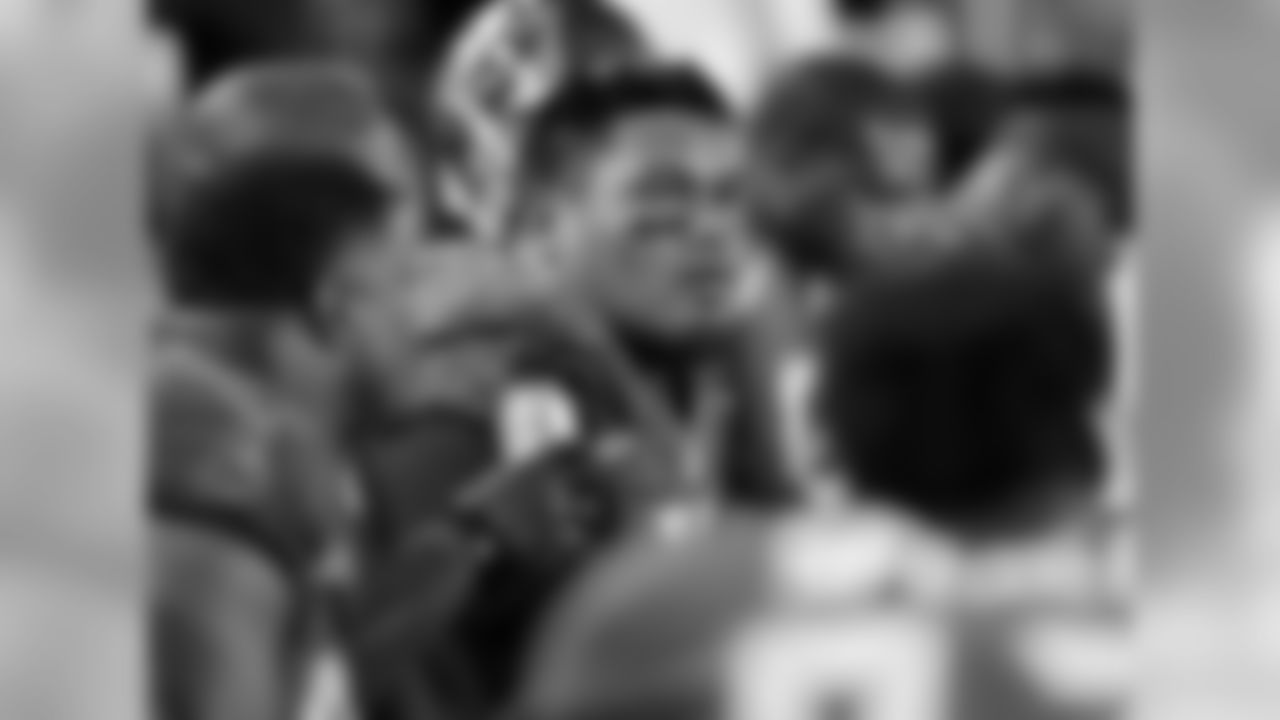
96 DE Sealver Siliga
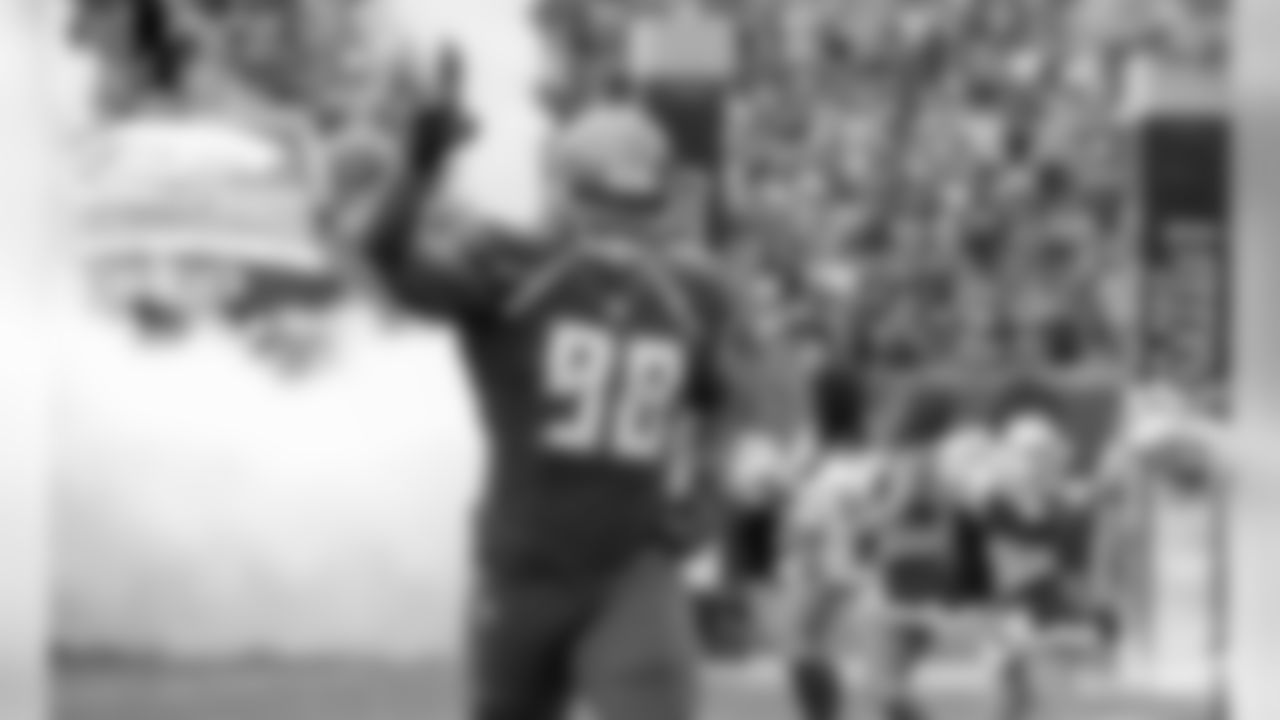
98 DT Clinton McDonald
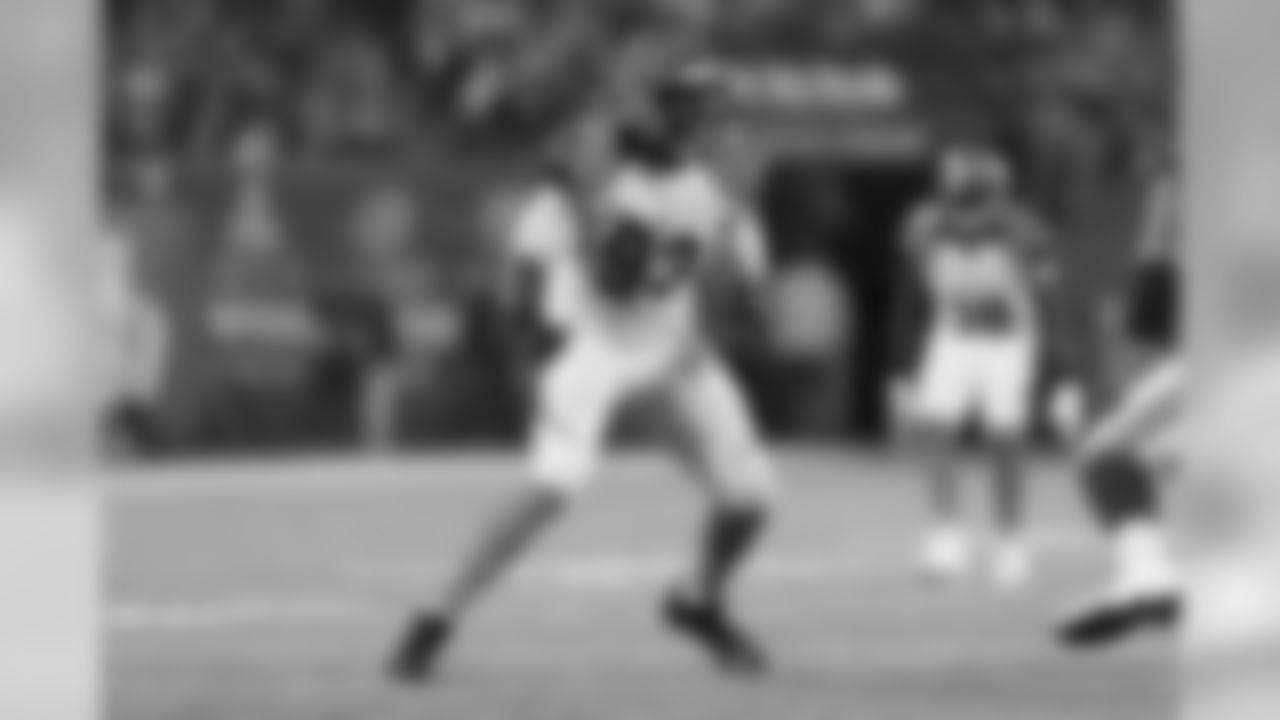
DE Will Clarke
The pair of games in '93 was unusual in that Chicago pounded the Bucs, 47-17, in Chicago in September but Tampa Bay came back to get a 13-10 win in the December rematch. Jim Harbaugh was ruthlessly efficient in the first game, completing 17 of 22 passes for 192 yards, two touchdowns and no picks, but in the second game he was knocked out with a hand injury and replaced by Peter Tom Willis. Perhaps still stinging from his big miss the year before (and the "gutless" and "mentally weak" barbs he took from Mike Ditka after the fact), Butler riled up the Bucs by taunting their bench after making a 55-yard field goal to make it 10-3, Tampa Bay, at halftime. The Bucs got the last laugh, however, when they stopped two fourth-down conversion attempts by Willis and the Bears' offense in Buccaneer territory in the fourth quarter.
Then came another five-game Chicago wining skein, in which Tampa Bay's offense failed to score more than 10 points in any game, that stretched into 1996. The Bucs got a win in the latter half of '96 – an 88-yard punt return for a touchdown by Karl Williams was key because the Tampa Bay offense was out-gained, 339-181 – but the two teams split in 1997, Tampa Bay's breakout campaign. The Bucs were already 8-3 when they faced the Bears the first time that season but they got surprised in Chicago, 13-7, by a 1-10 Bears team. That helped put the Bucs into something of a must-win situation when they welcomed the Bears to Houlihan's Stadium in the season finale. Tampa Bay responded with an easy 31-15 decision, as Williams once again scored on a punt return (and on a reception, too, for good measure).
That game was the last regular-season contest played in what was known as Tampa Stadium for most of its existence. The Bucs moved into Raymond James Stadium in 1998 and the first team to visit was, of course, the Chicago Bears. The Bucs came home after playing five road preseason games and two more away from home to start the regular season, and all that traveling might have worn on them as they let the Bears get up 15-0 at halftime. Fortunately, the Bucs dominated in the second half with 27 unanswered points, the most entertaining of which came on a one-handed catch by TE Dave Moore on a deep ball down the sideline.
At this point, the Bucs were firmly within their six-game winning streak against Chicago, and to be fair we won't belabor every outcome. Included in that run, though, was a 6-3 decision in 1999 that is still one of only three games in Tampa Bay's four decades of play in which the two teams combined for fewer than 10 points. Derrick Brooks had 10 tackles, two interceptions and four passes defensed to lead a swarming Bucs' defense. The last game in that run was the Bucs' most lopsided victory in the series, a 41-0 blanking in Tampa in 2000 in which the home team scored in a wide variety of manners, from a Ronde Barber fumble return to a 20-yard Mike Alstott run to a Shaun King bootleg. Chicago gained just 165 yards, most of it in the fourth quarter with the outcome well decided. In a reverse of the 1993 season, Chicago somehow managed to rebound from that massacre to win the other game in the season, 13-10, in Chicago.
The Bears swept the Bucs in the last season of the NFC Central's existence, 2001. In 2002, history repeated itself again as a trip to Chicago was the season finale, with some important playoff possibilities on the line for Tampa. As mentioned, the contest was played in Champaign, Illinois due to construction at Soldier Field and it was a night contest, which gave the Bucs a chance to see how the rest of the day unfolded. A Green Bay loss in the afternoon set it up so that a Buccaneer win in the evening would give them a first-round bye…and that's exactly what happened. On an extremely cold and windy night, the Bucs won, 15-0, on five Martin Gramatica field goals, all in the same direction to take advantage of the wind.
That 2002 Bucs team dominated many an opponent en route to raising the Lombardi Trophy, but the 2004 crew had it much rougher, going 5-11. That team still beat the Bears handily, though, handing them a 19-7 defeat in Tampa in which the visitors were held to 167 yards of offense. Conversely, the Bucs were good again in 2005 but not good enough to avoid a 13-10 loss at the hands of the Bears. That game started out badly, with QB Chris Simms fumbling at the Bucs one-yard line on the third play to set up Chicago's only touchdown. K Matt Bryant, dealing with a hamstring he tweaked on the opening kickoff, also missed a 29-yard field goal that would have tied the game late in the fourth quarter.
As mentioned above, the Bucs' trips to Chicago in 2006 and 2008 had some similarities. In the first one, a 3-10 Bucs team rallied for 21 points in the fourth quarter to force overtime. QB Tim Rattay, a 2005 trade-deadline acquisition, relieved starter Bruce Gradkowski and threw for 268 yards and three touchdowns. In overtime, however, neither team got much going until the Bears finally kicked a game-winning field goal for a 34-31 decision with less than four minutes to play.
Tampa Bay's rally in Chicago two years later was led by Brian Griese, who threw a team-record 67 passes, completing 38 of them for 407 yards, two touchdowns and three interceptions. Griese tied the game with seven seconds left on a one-yard TD pass to TE Jerramy Stevens, then set up the game-winning Matt Bryant field goal 10 minutes into overtime with a 38-yard completion to WR Antonio Bryant.
Both teams had a lengthy trip to convene for their most recent meeting, a 2011 contest in London that was technically considered a Buccaneers home game. The Bears enjoyed the trip more, taking home a 24-18 win powered by Matt Forte's 183 combined yards and one touchdown. The Bucs took a 10-0 lead into halftime last year in Chicago on the strength of Mike Evans' 19-yard touchdown catch, but two Forte touchdowns powered a 21-point third quarter for the home team. Down by eight with two minutes to play, QB Josh McCown tried to convert a fourth-and-one at the Chicago 36 but was stopped by Jared Allen, ending the Bucs' last real scoring threat. The play was challenged but upheld.
Series Notes:
- Overall Season Series: Chicago leads, 38-19
- Bucs' Home Record: 13-17
- Bucs' Road Record: 6-21
- Current Streak: Win 1 (2016)
- Buccaneers' Longest Winning Streak: 6 (1997-2000)
- Bears' Longest Winning Streak: 12 (1983-88)
- Regular Season Point Total: Buccaneers 923, Bears 1,224
- Most Points in a Game for Tampa Bay: 42…Buccaneers 42, Bears 35 (1989)
- Most Points in a Game for Chicago: 48…Bears 48, Buccaneers 14 (1988)
- Most Points, combined: 77…Buccaneers 42, Bears 35 (1989)
- Fewest Points in a Game for Tampa Bay: 0…five times
- Fewest Points in a Game for Chicago: 0…two times
- Fewest Points in a Game, combined: 9…Buccaneers 6, Bears 3 (1999)
Bucs-Bears Game-by-Game Record:
| 1977 | L, 10-0 | Tampa |
| 1978 | W, 33-19 | Tampa |
| 1978 | L, 14-3 | Chicago |
| 1979 | W, 17-13 | Chicago |
| 1979 | L, 14-0 | Tampa |
| 1980 | L, 23-0 | Chicago |
| 1980 | L, 14-13 | Tampa |
| 1981 | L, 28-17 | Chicago |
| 1981 | W, 20-10 | Tampa |
| 1982 | W, 26-23 (OT) | Tampa |
| 1983 | L, 17-10 | Chicago |
| 1983 | L, 27-0 | Tampa |
| 1984 | L, 34-14 | Chicago |
| 1984 | L, 44-9 | Tampa |
| 1985 | L, 38-28 | Chicago |
| 1985 | L, 27-19 | Tampa |
| 1986 | L, 23-3 | Tampa |
| 1986 | L, 48-14 | Chicago |
| 1987 | L, 20-3 | Chicago |
| 1987 | L, 27-26 | Tampa |
| 1988 | L, 28-10 | Chicago |
| 1988 | L, 27-15 | Tampa |
| 1989 | W, 42-35 | Tampa |
| 1989 | W, 32-31 | Chicago |
| 1990 | L, 26-6 | Tampa |
| 1990 | L, 27-14 | Chicago |
| 1991 | L, 21-20 | Tampa |
| 1991 | L, 27-0 | Chicago |
| 1992 | L, 31-14 | Chicago |
| 1992 | W, 20-17 | Tampa |
| 1993 | L, 47-17 | Chicago |
| 1993 | W, 13-10 | Tampa |
| 1994 | L, 21-9 | Chicago |
| 1994 | L, 20-6 | Tampa |
| 1995 | L, 25-6 | Tampa |
| 1995 | L, 31-10 | Chicago |
| 1996 | L, 13-10 | Chicago |
| 1996 | W, 34-19 | Tampa |
| 1997 | L, 13-7 | Chicago |
| 1997 | W, 31-15 | Tampa |
| 1998 | W, 27-15 | Tampa |
| 1998 | W, 31-17 | Chicago |
| 1999 | W, 6-3 | Tampa |
| 1999 | W, 20-6 | Chicago |
| 2000 | W, 41-0 | Tampa |
| 2000 | L, 13-10 | Chicago |
| 2001 | L, 27-24 | Tampa |
| 2001 | L, 27-3 | Chicago |
| 2002 | W, 15-0 | Champaign, IL |
| 2004 | W, 19-7 | Tampa |
| 2005 | L, 13-10 | Tampa |
| 2006 | L, 34-31 (OT) | Chicago |
| 2008 | W, 27-24 (OT) | Chicago |
| 2011 | L, 24-18 | London |
| 2014 | L, 21-13 | Chicago |
| 2015 | L, 26-21 | Tampa |
| 2016 | W, 36-10 | Tampa |


